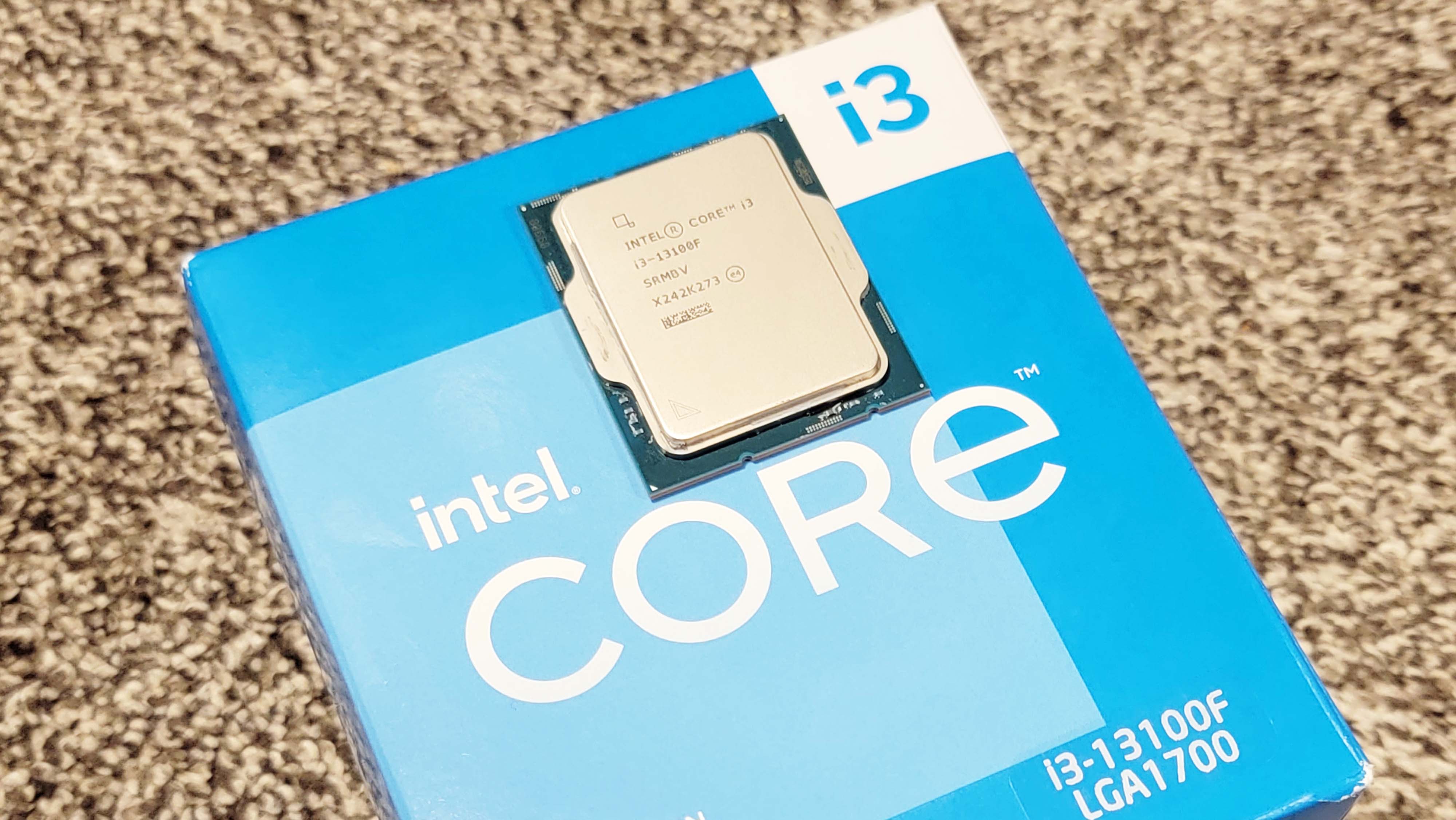Why you can trust Tom's Hardware
Intel Core i3-13100F Productivity Benchmarks — The TLDR
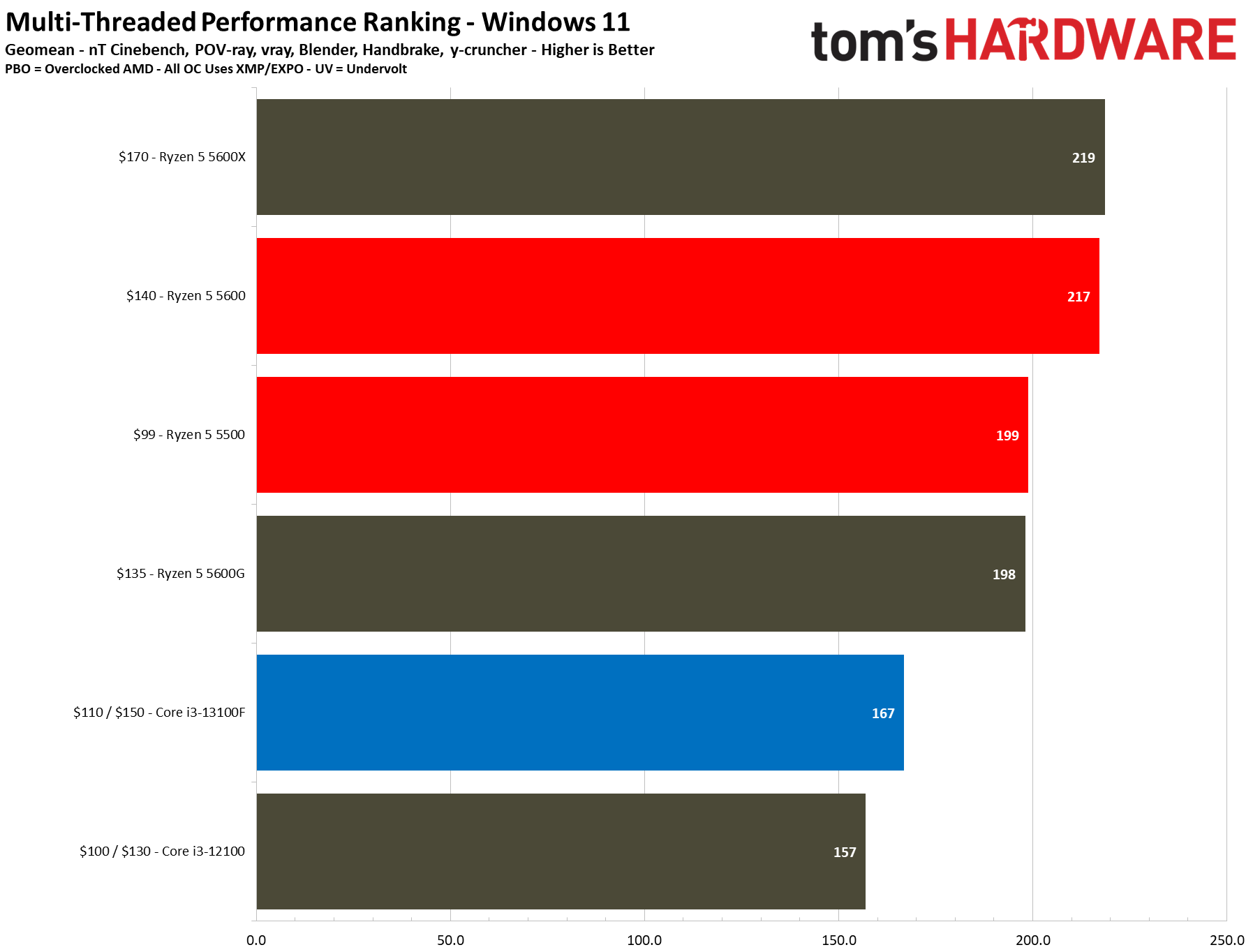
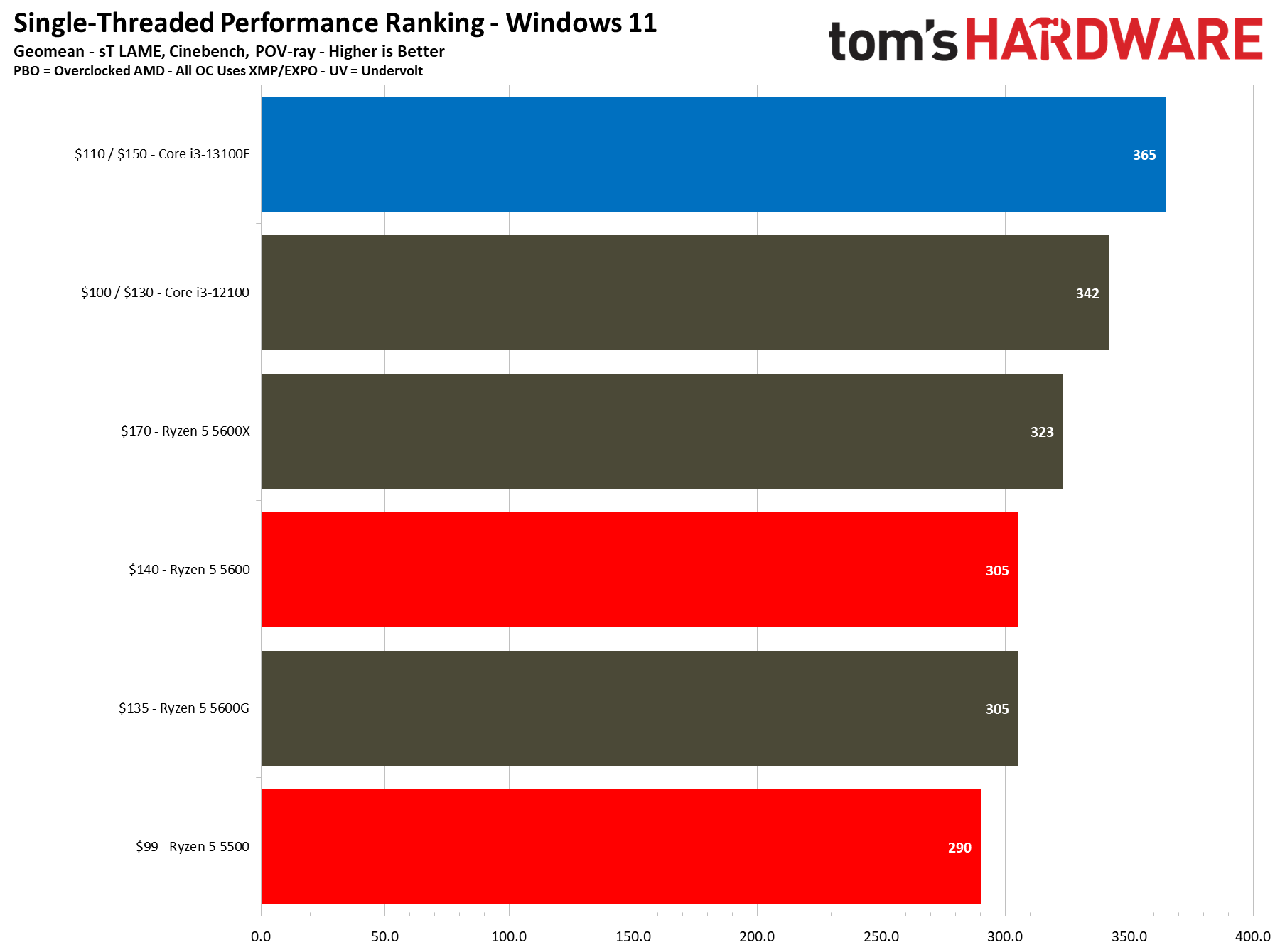
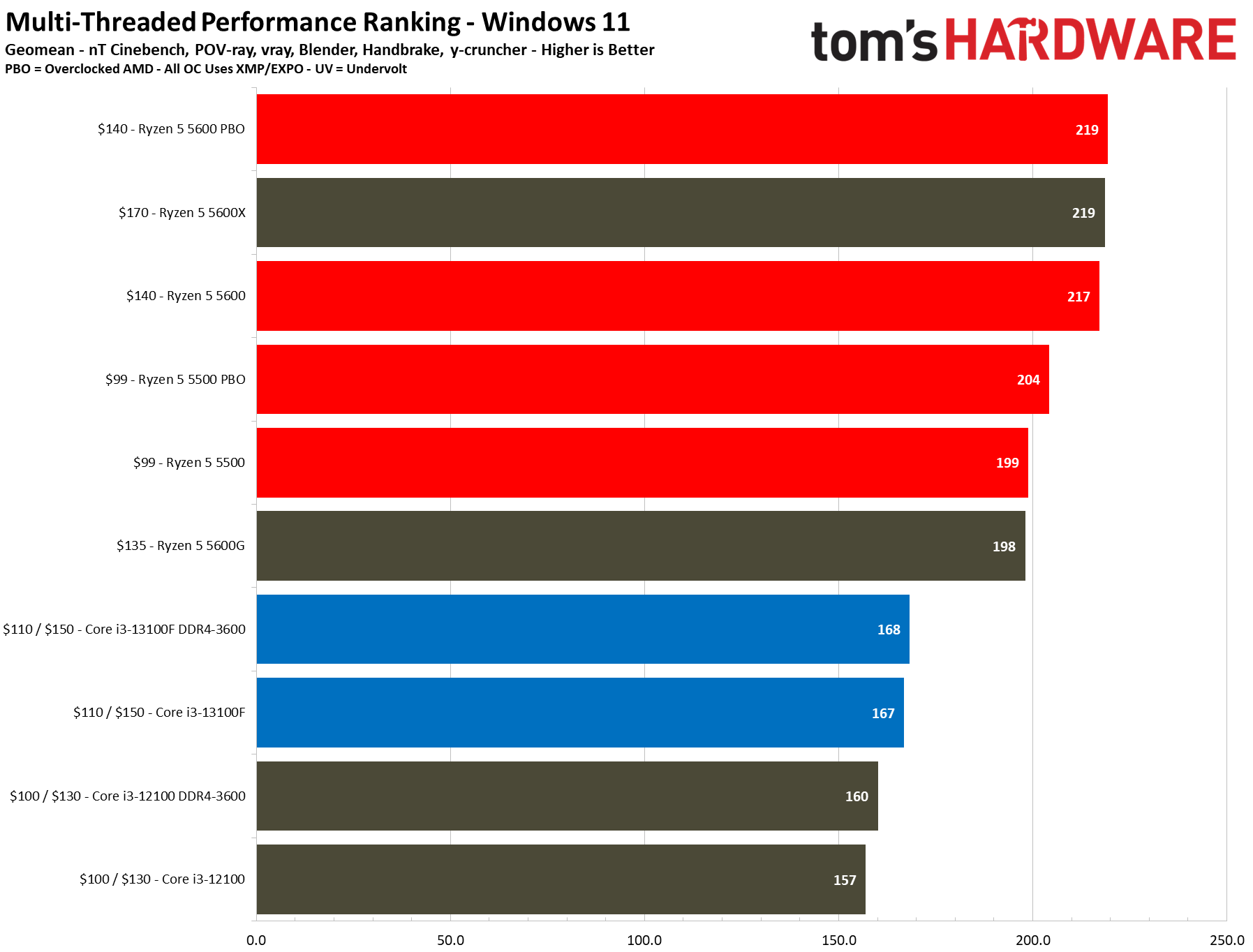
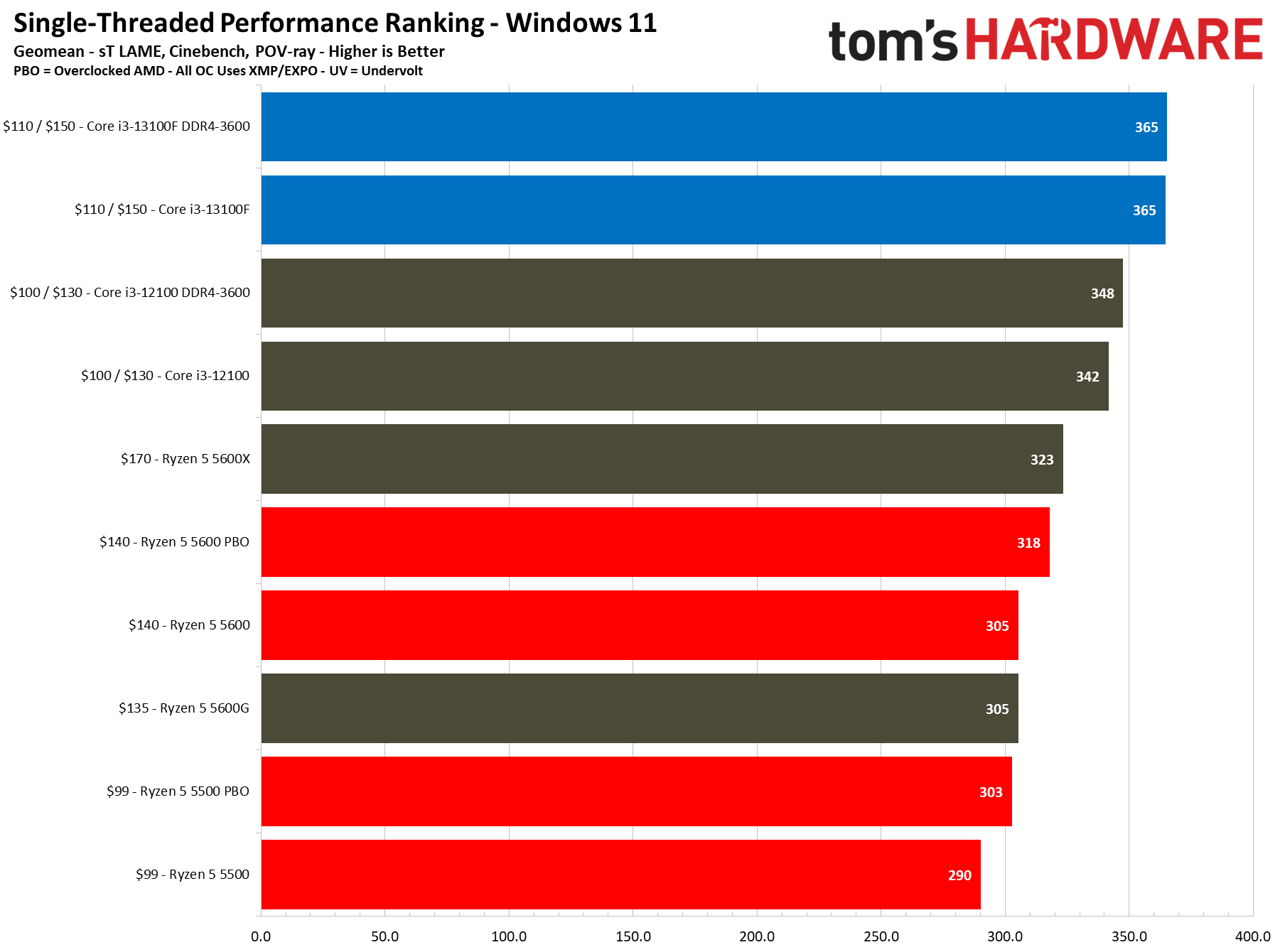
The first slides are simplified without the overclocking configs, while the remainder of the slides in the album covers the full roster of tested configurations. We boil productivity application performance down into two broad categories: single- and multi-threaded. These slides show the geometric mean of performance in several of our most important tests in each category, but be sure to look at the individual benchmark results below.
Again, due to the $40 price gap between them, the $150 Core i3-13100 and $110 13100F each have a different competitor in our test suite. With six Zen 3 cores and 12 threads, the $140 Ryzen 5 5600 easily leads our threaded benchmark suite with 30% more performance than the Core i3-13100. The six-core, 12-thread $99 Ryzen 5 5600 is also plenty impressive with a 20% lead over the 13100 in threaded workloads.
The Intel 13100/F takes the lead in single-threaded work, with a 20% lead over the Ryzen 5 5600 and a 25% lead over the Ryzen 5 5500. That will result in snappier responsiveness in lighter fare, but the 13100/F's slow-downs in threaded work will be far more noticeable than its performance advantage in single-threaded work. Overall, the Ryzen 5 5600 and 5500 deliver a better blend of performance at their respective price points.
The Core i3-13100/F exhibits a more meaningful lead over the 12100/F in the productivity benchmarks than we saw in the gaming benchmarks, delivering 6% more performance in both single- and multi-threaded applications. However, this doesn't really justify a ~15% price hike, again making the 12100 the more reasonable choice if you're specifically looking to buy an Intel chip.
Notably, none of these chips benefit much from overclocking, with low-single-percentage-point gains. The benchmarks below are pretty predictable, with the Ryzen processors dominating the threaded benchmarks while Intel takes smaller leads in lightly-threaded applications. As such, we'll limit our commentary.
Rendering Benchmarks on Intel Core i3-13100F
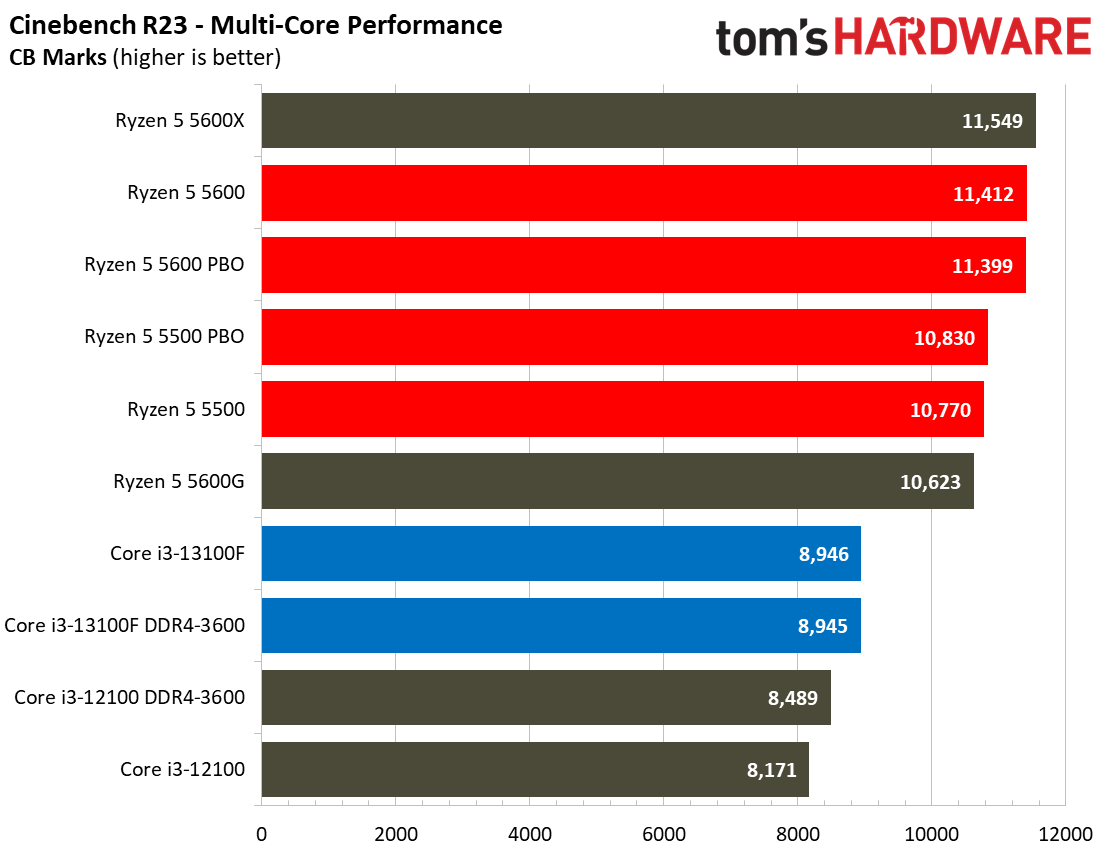
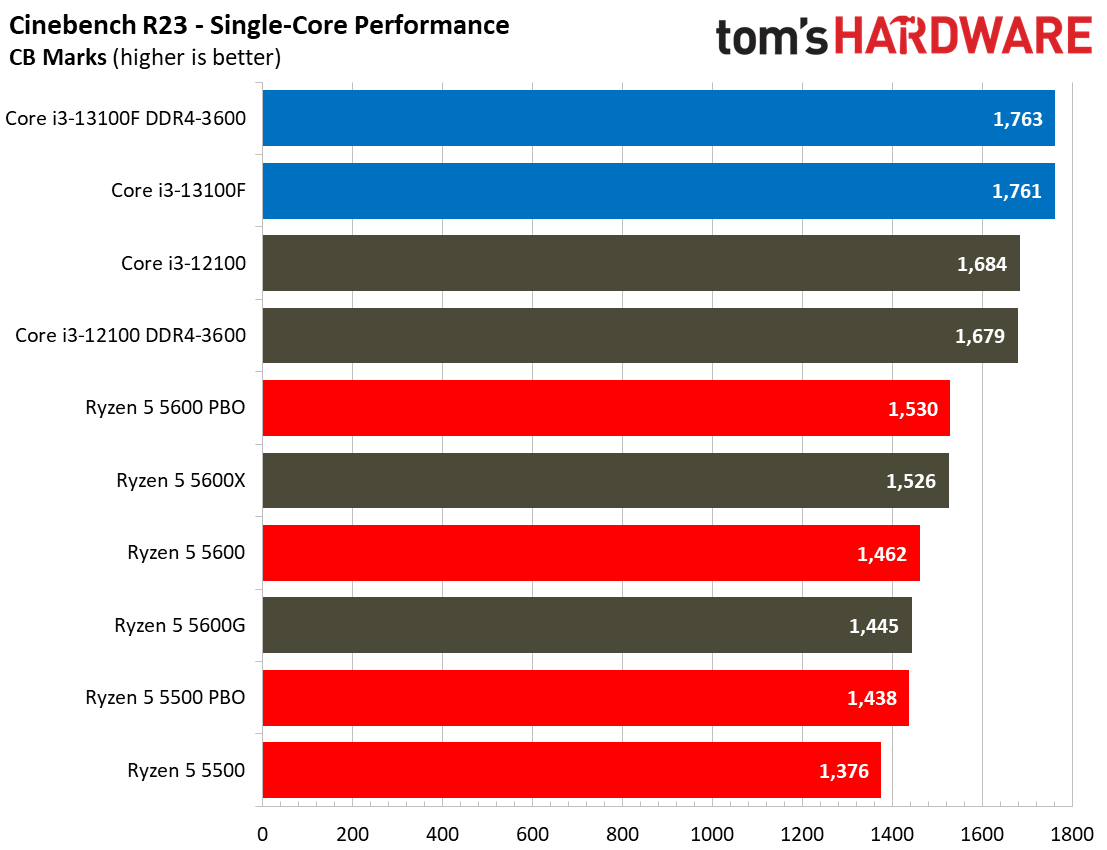
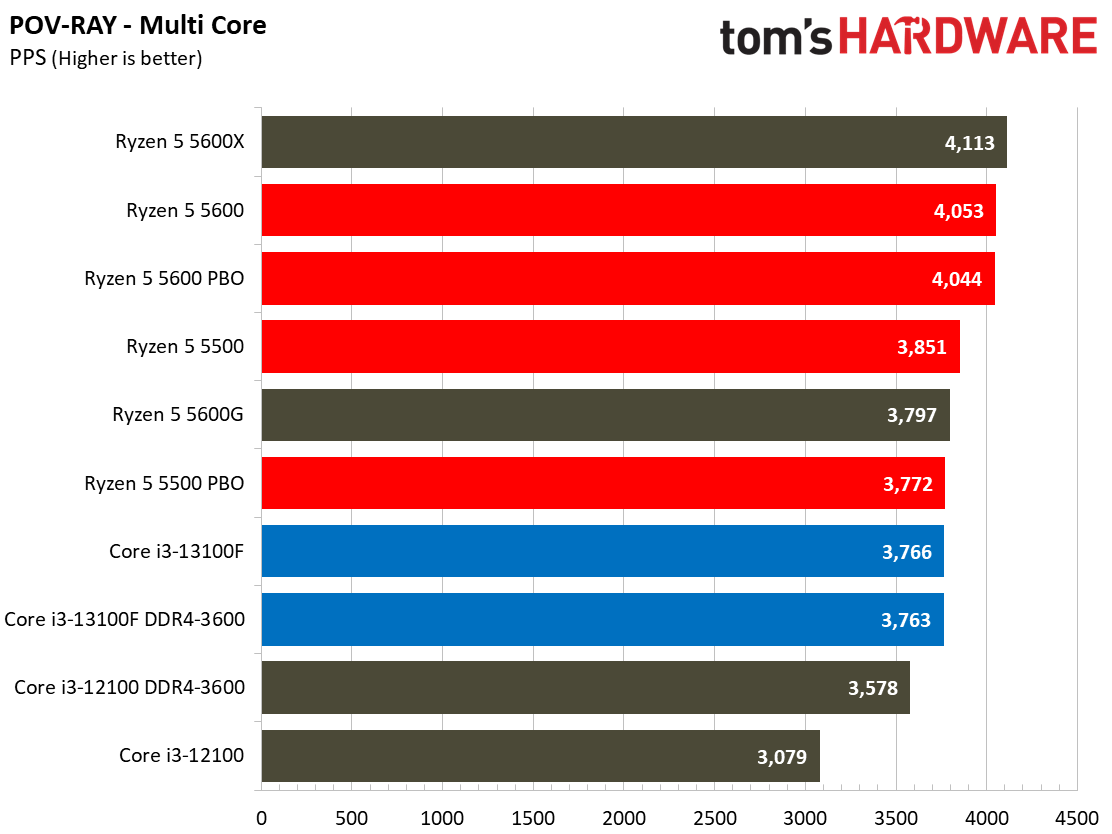
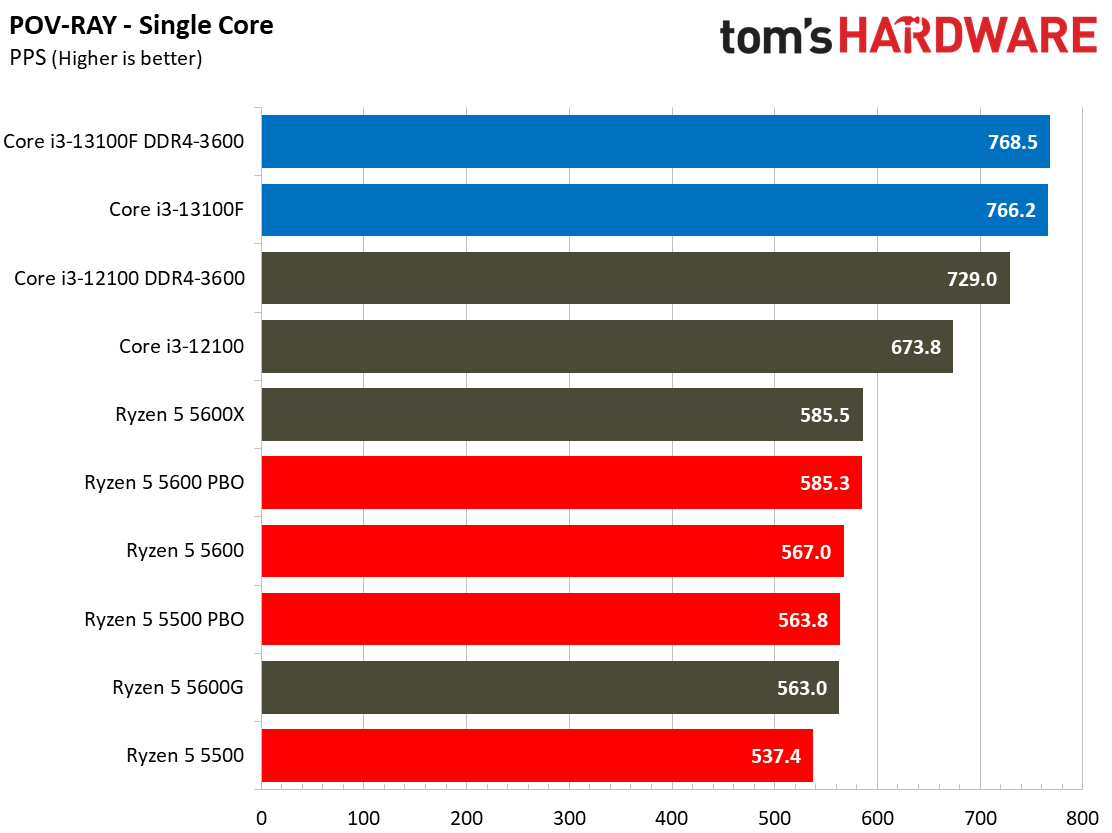
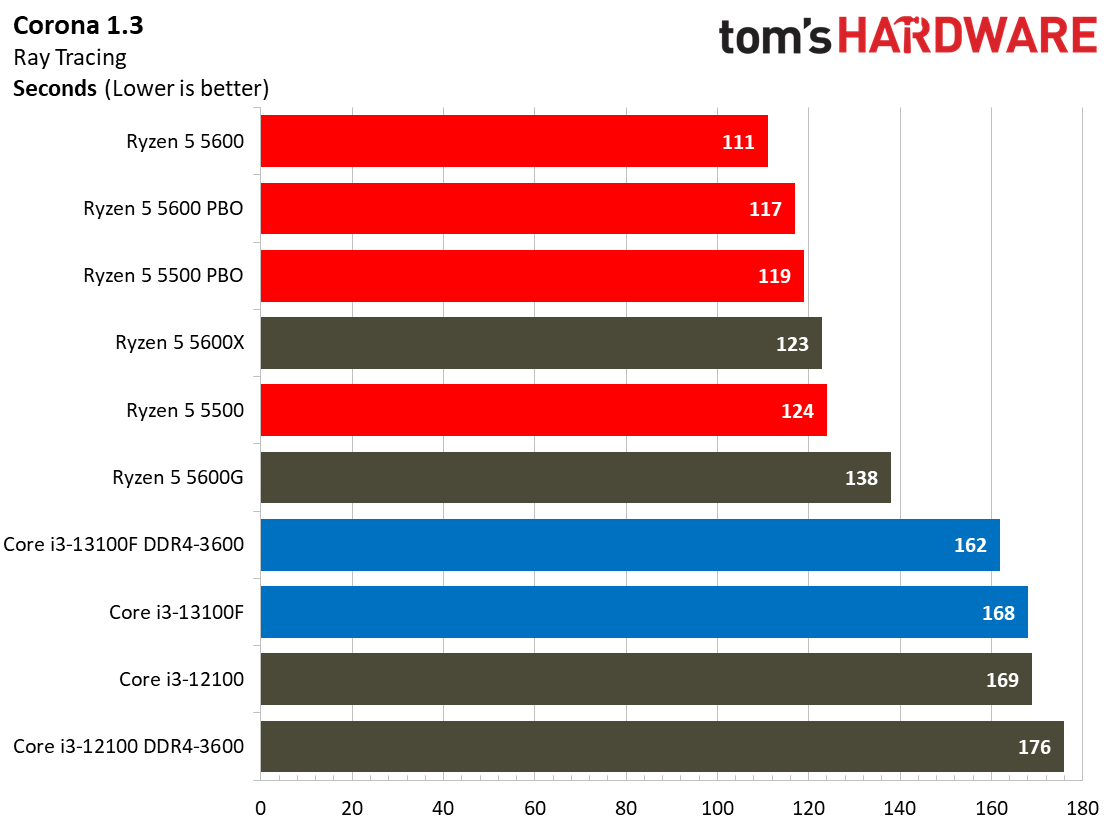
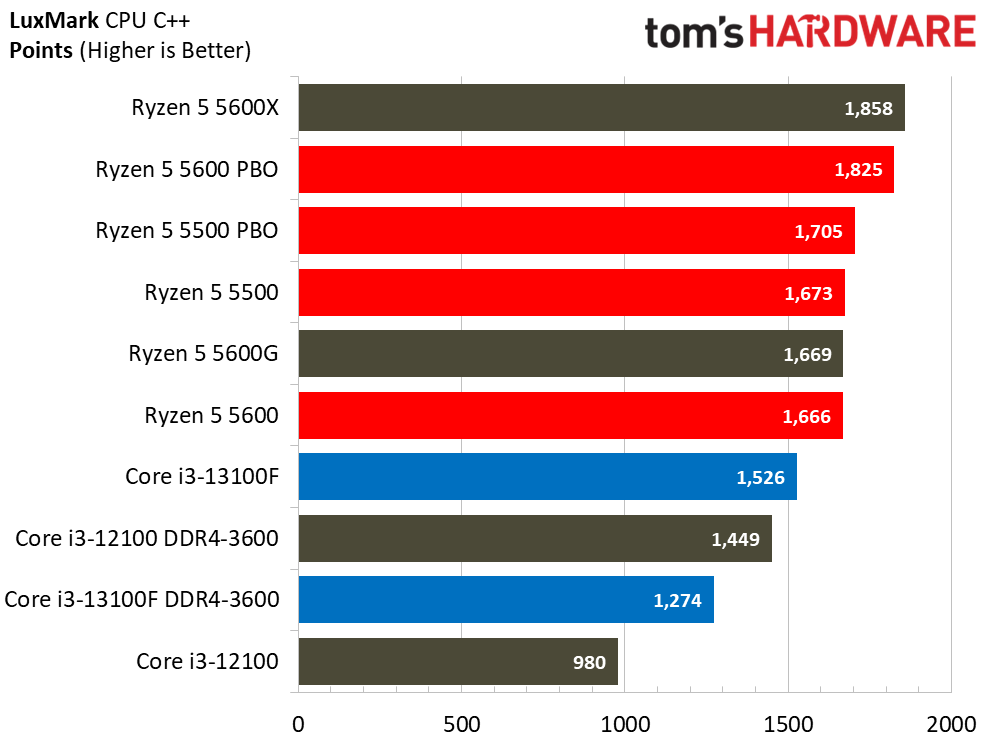
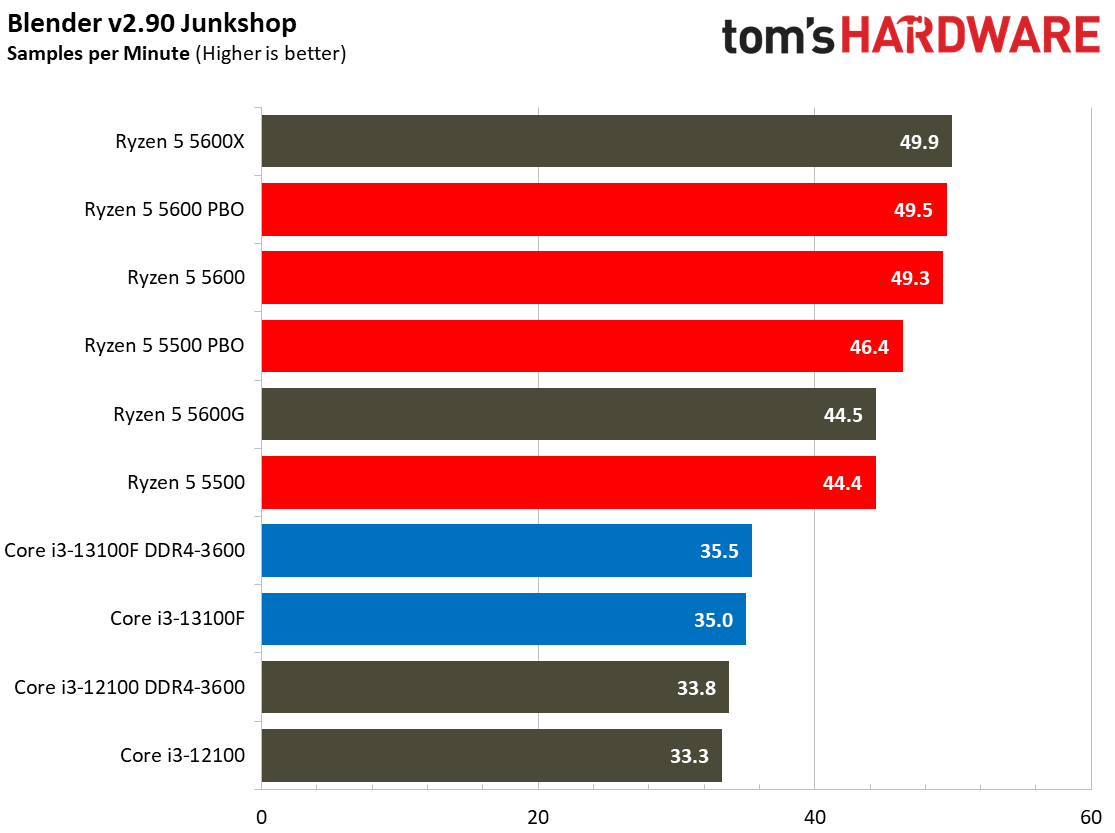
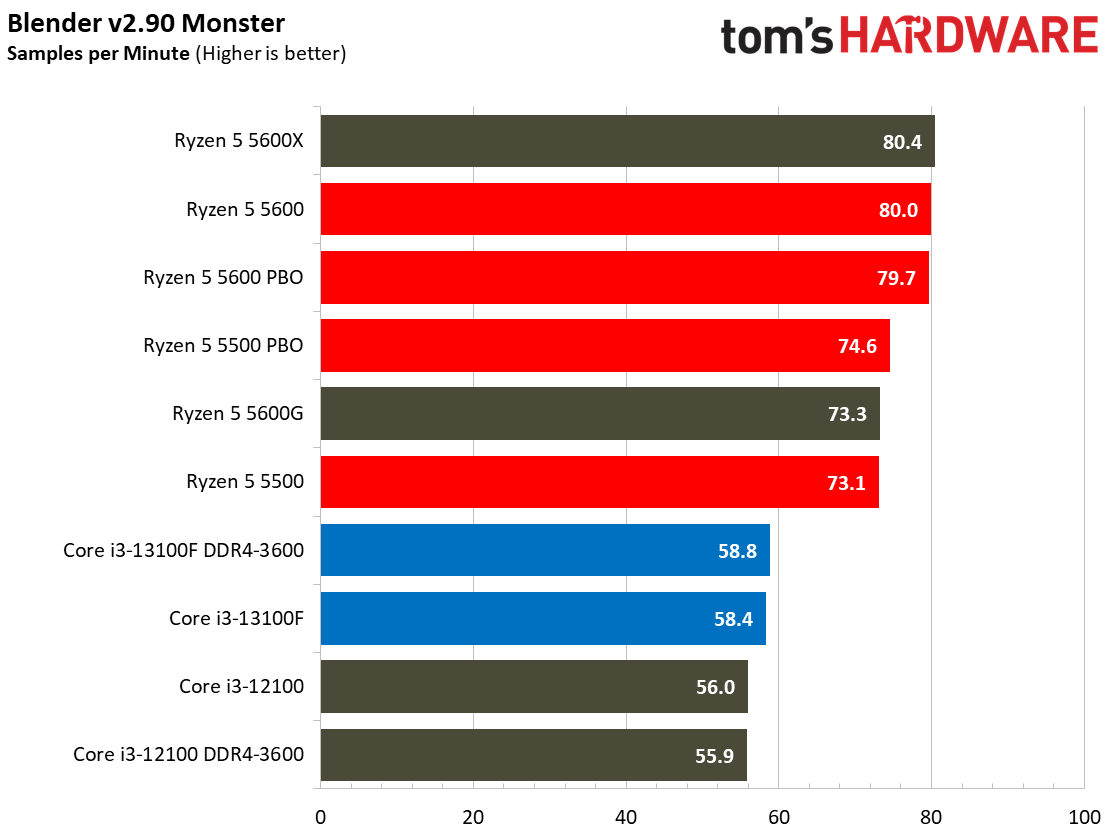
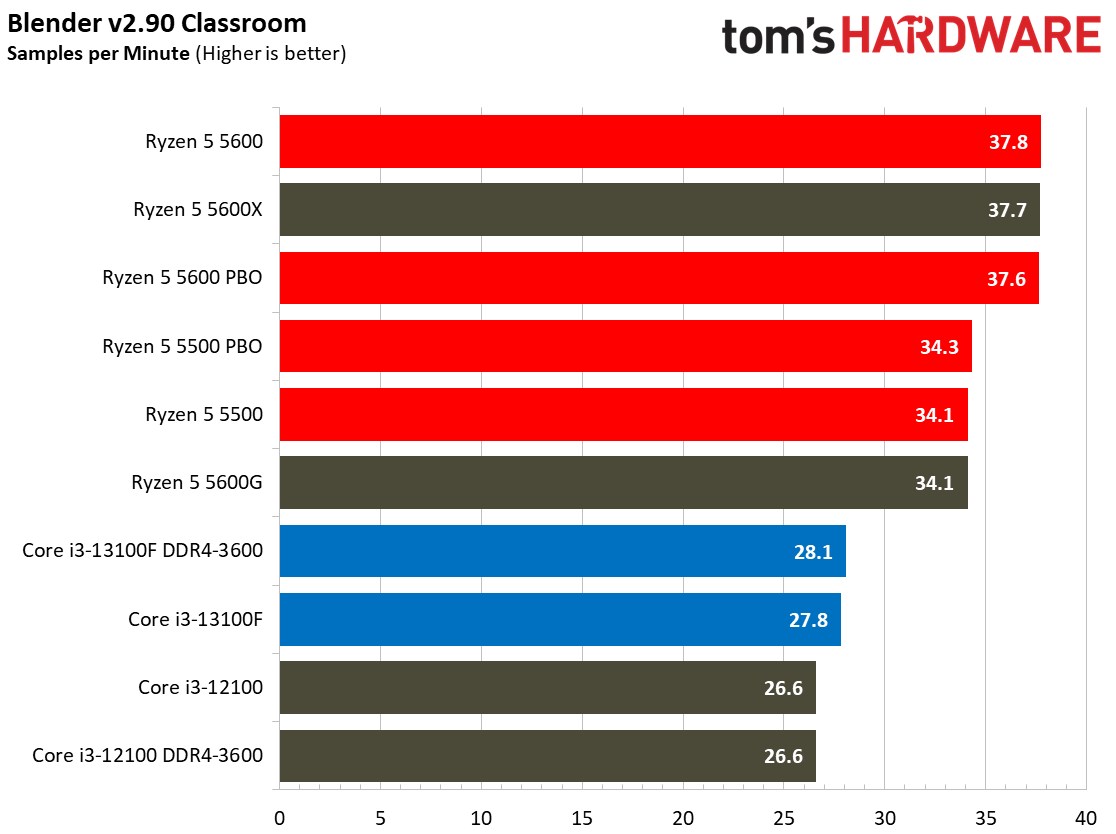
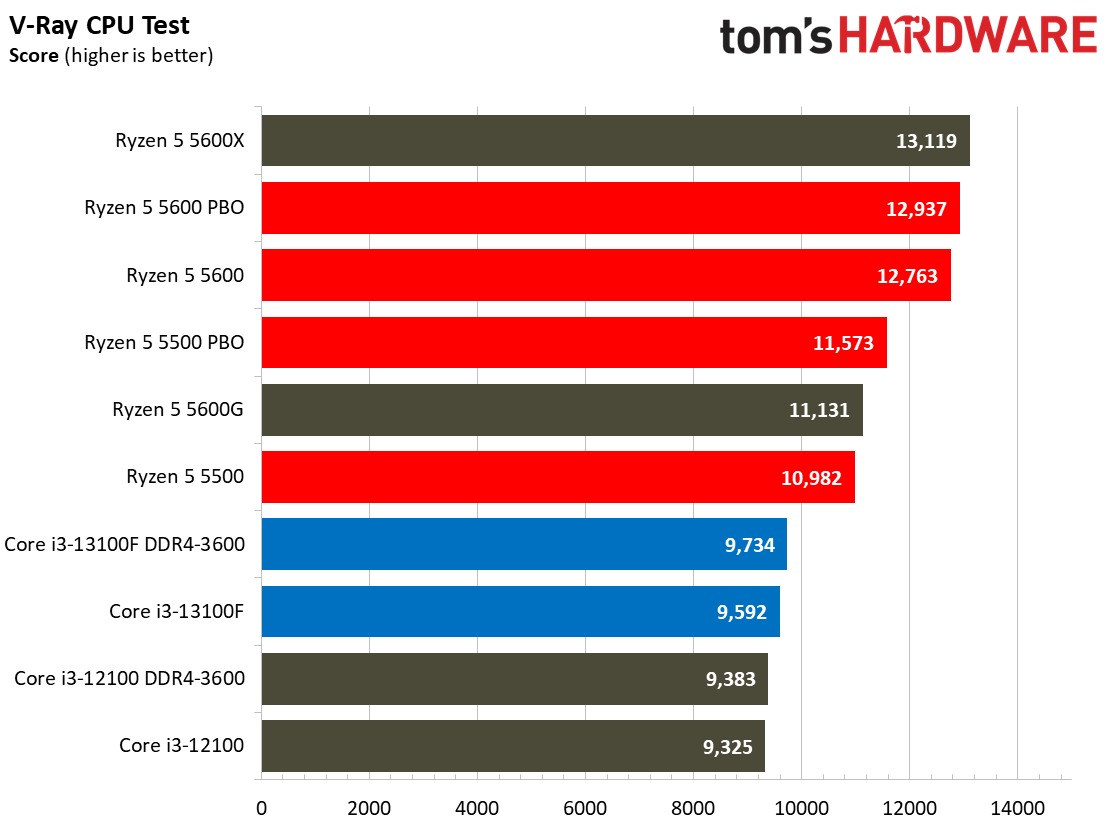
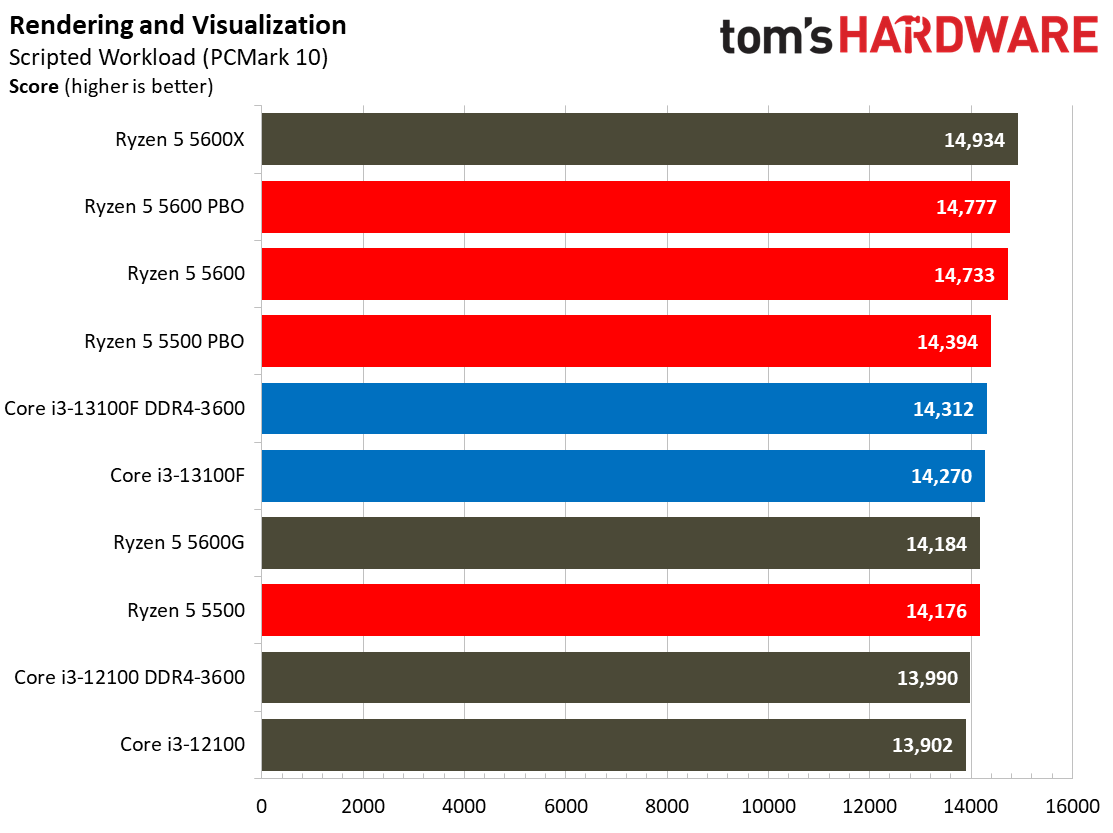
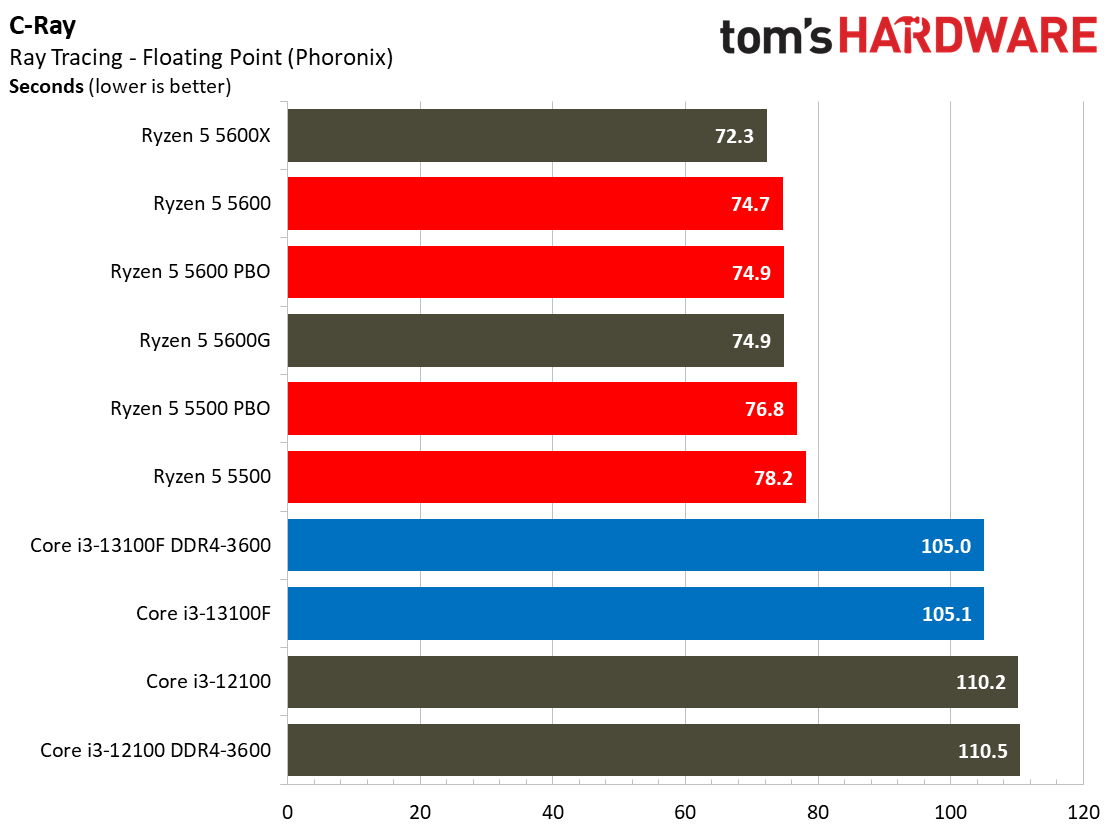
Here we have a quad-core attempting to fend off two six-core 12-thread chips in heavily threaded rendering applications. As you would expect, that doesn't go too well, with the Ryzen 5 5600 and 5500 both taking substantial leads in all manner of threaded workloads. The Core i3-13100/F does carve out a few wins in the single-threaded rendering tasks.
Encoding Benchmarks on Intel Core i3-13100F
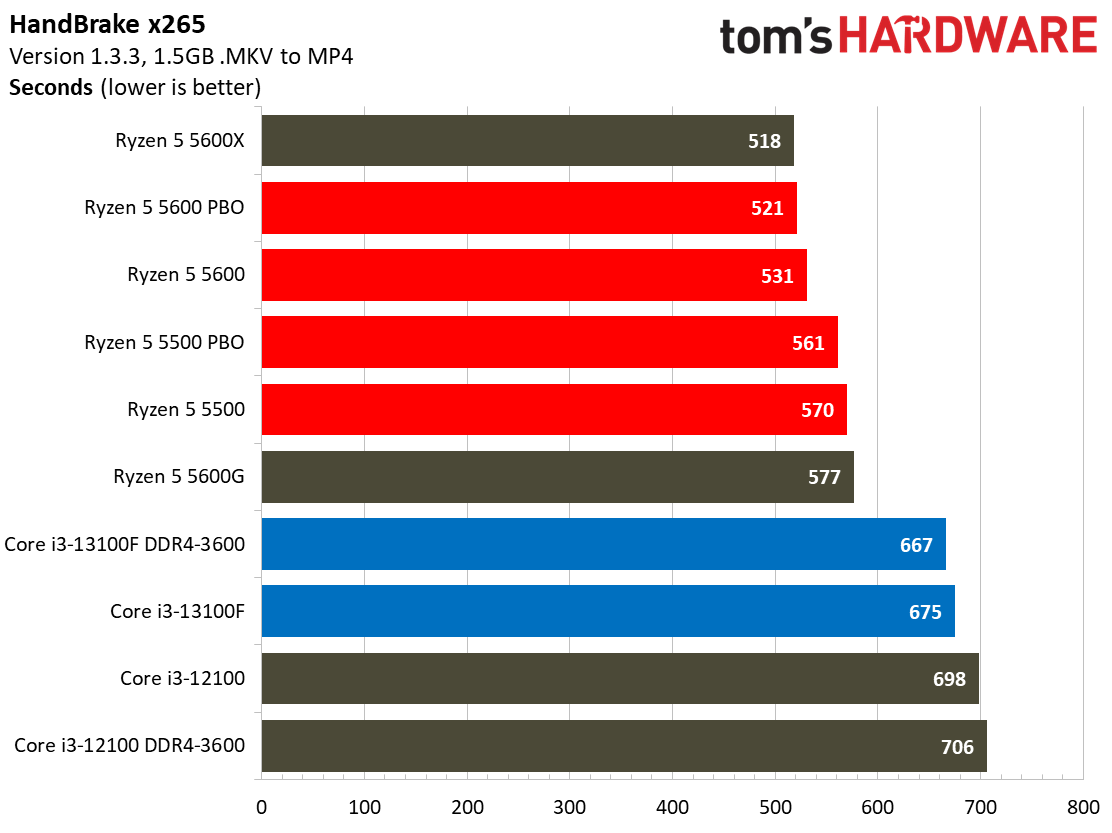
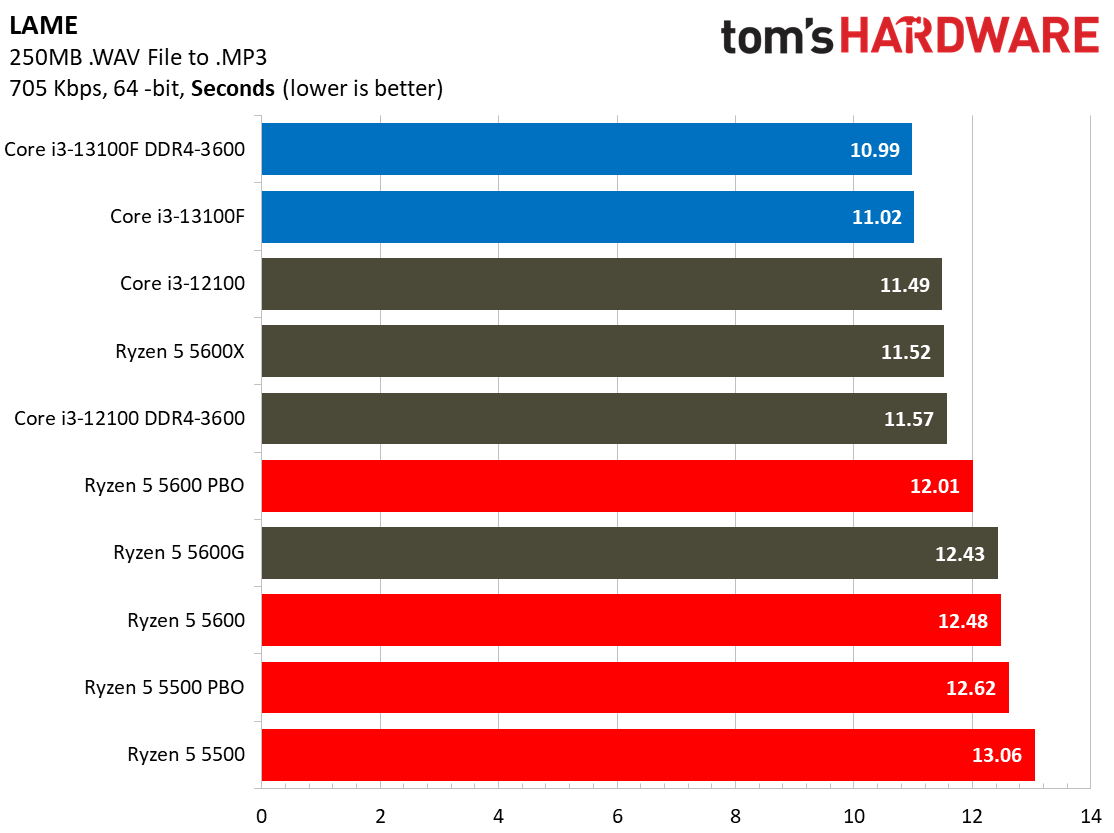
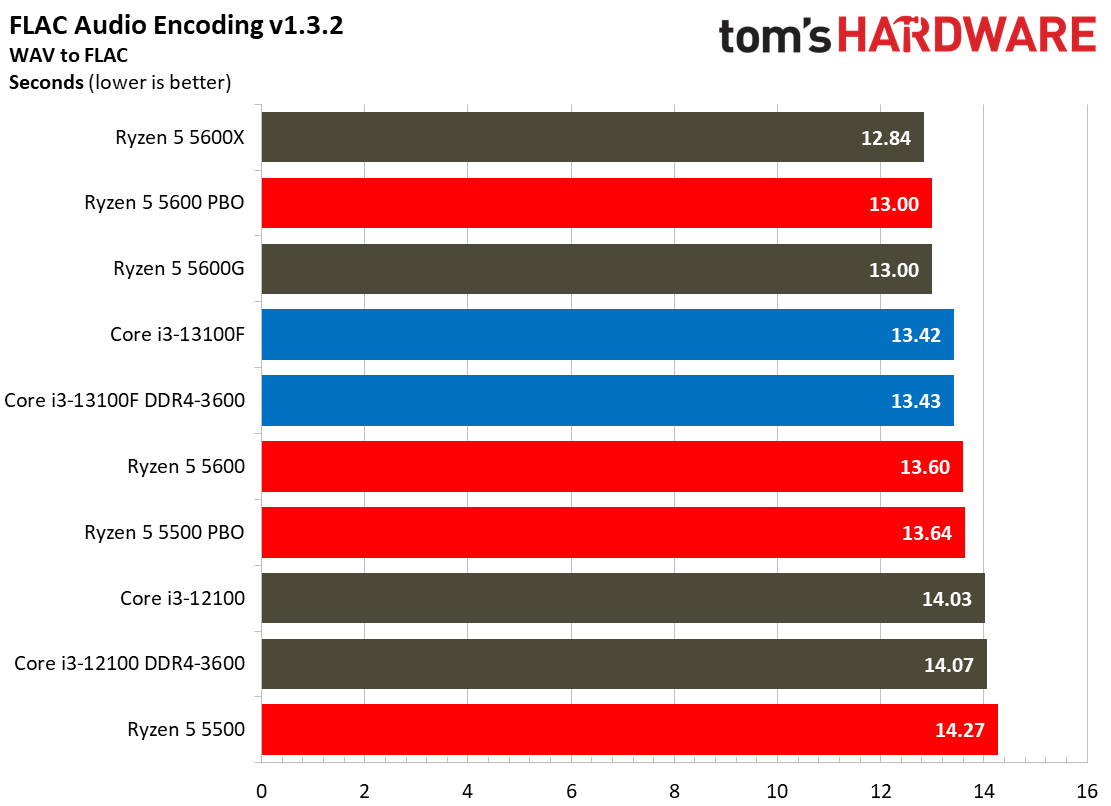
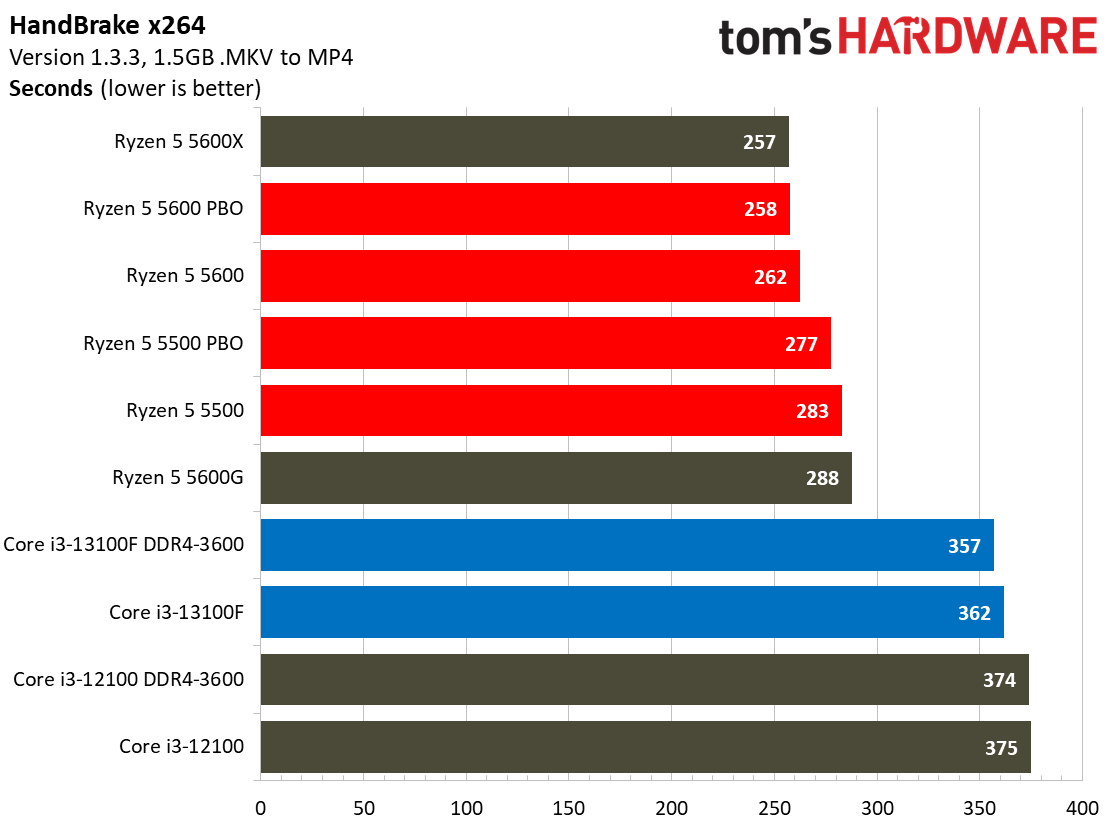
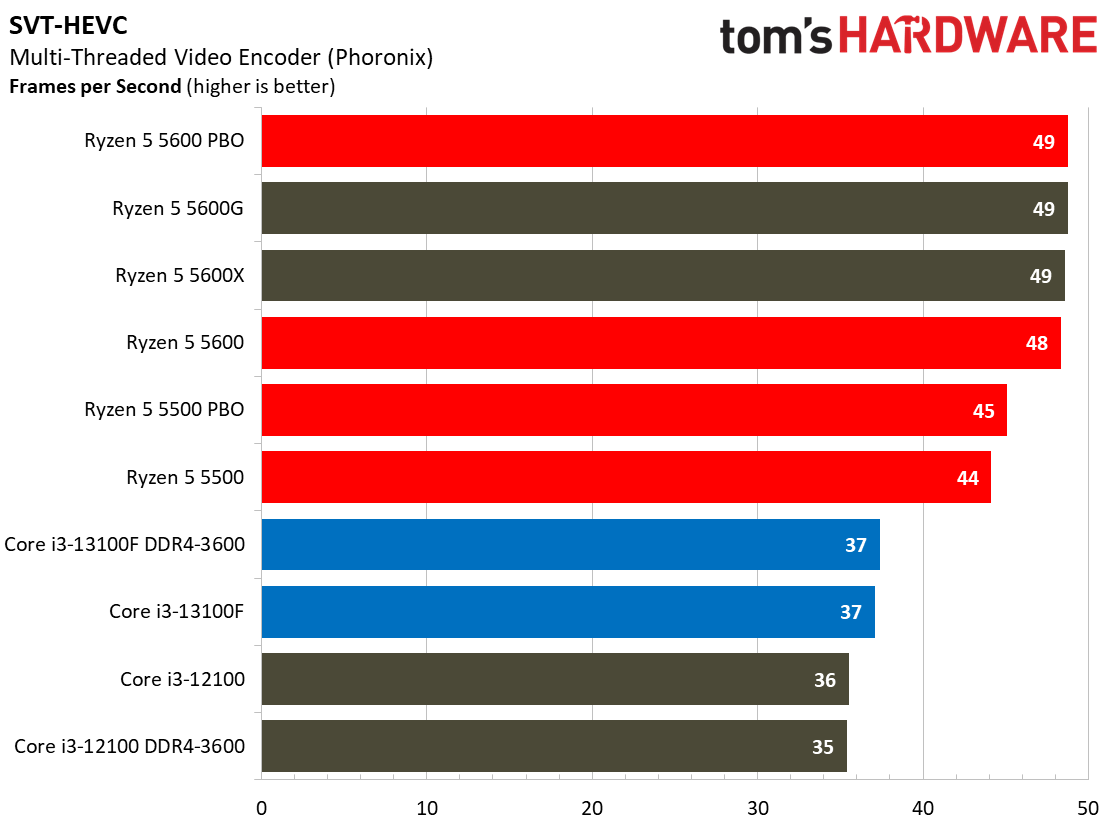
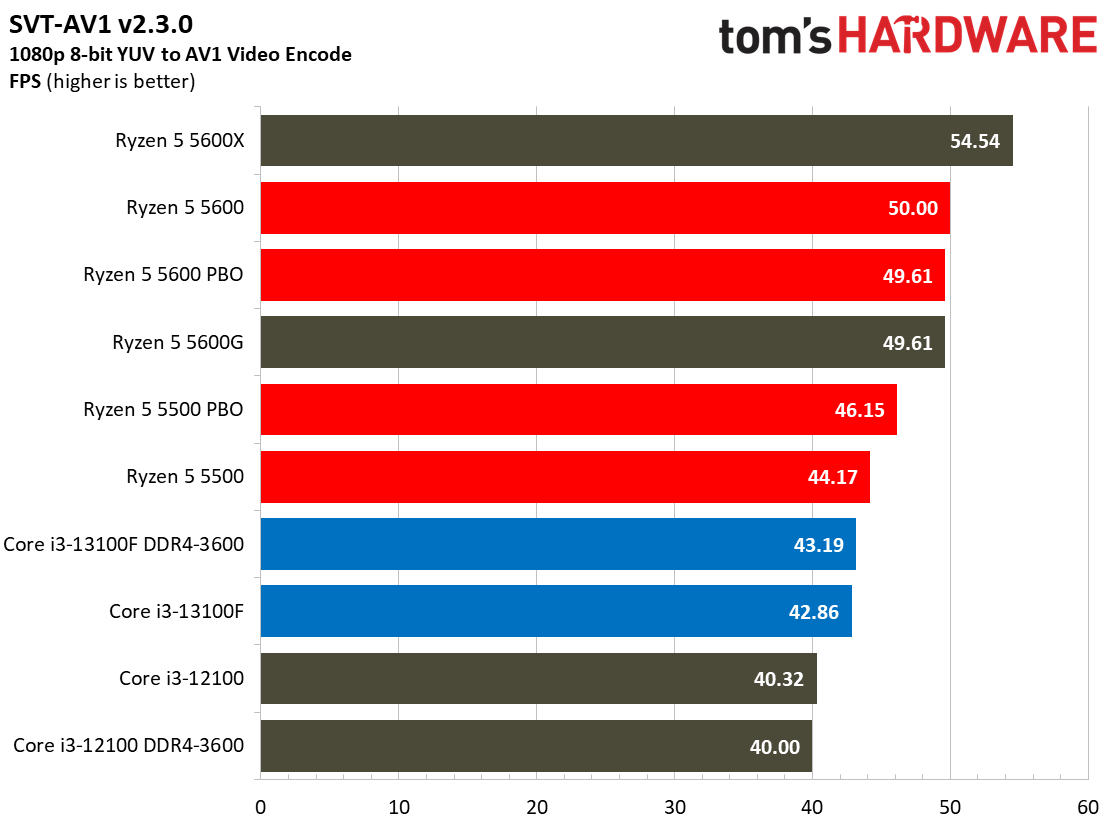
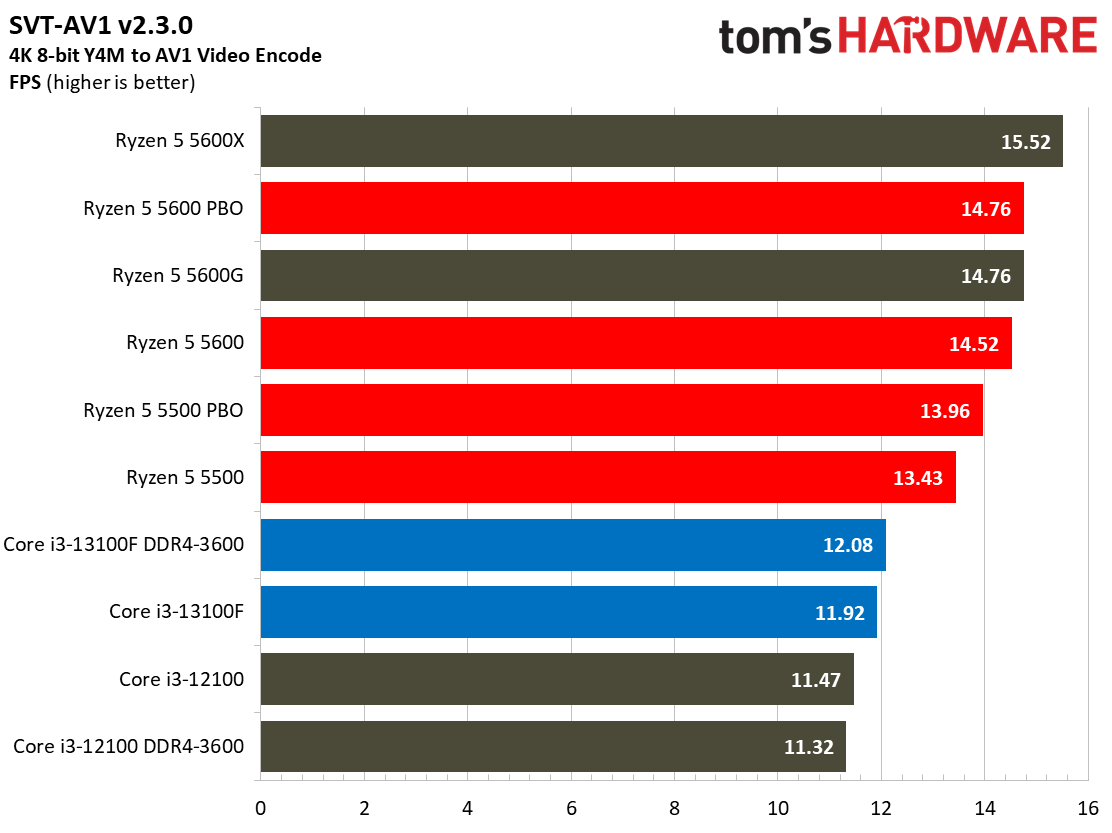
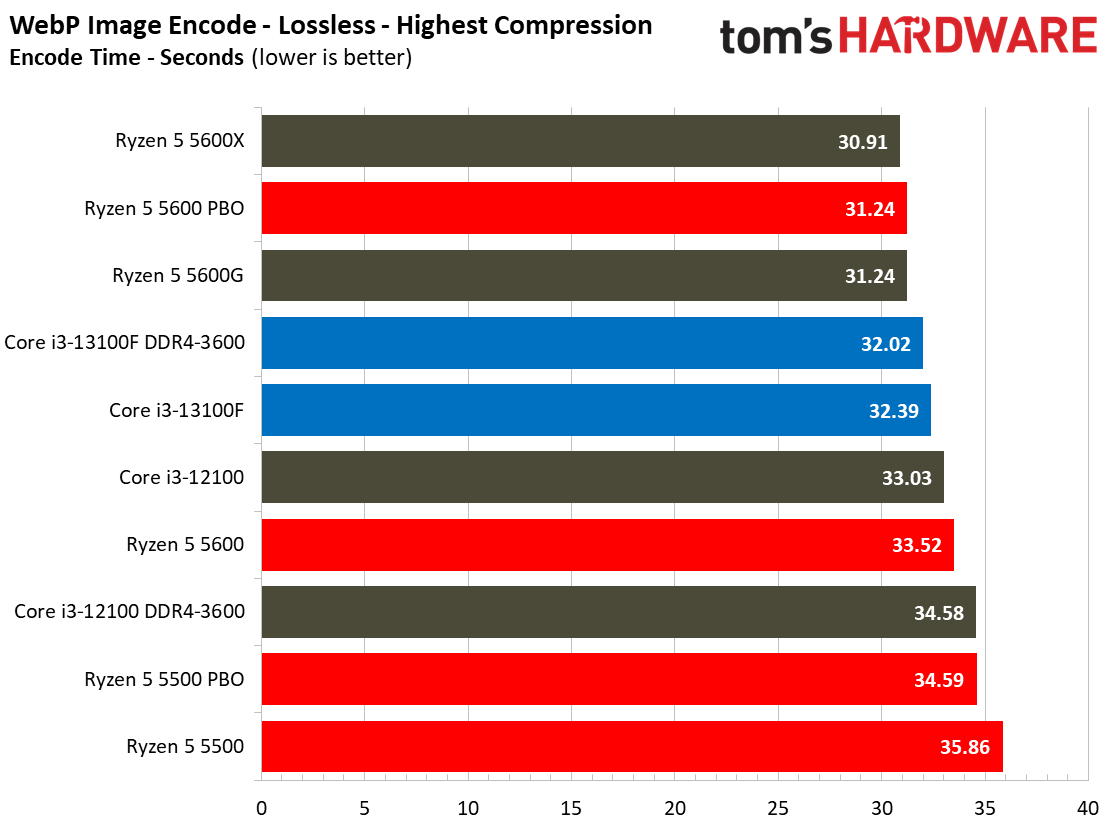
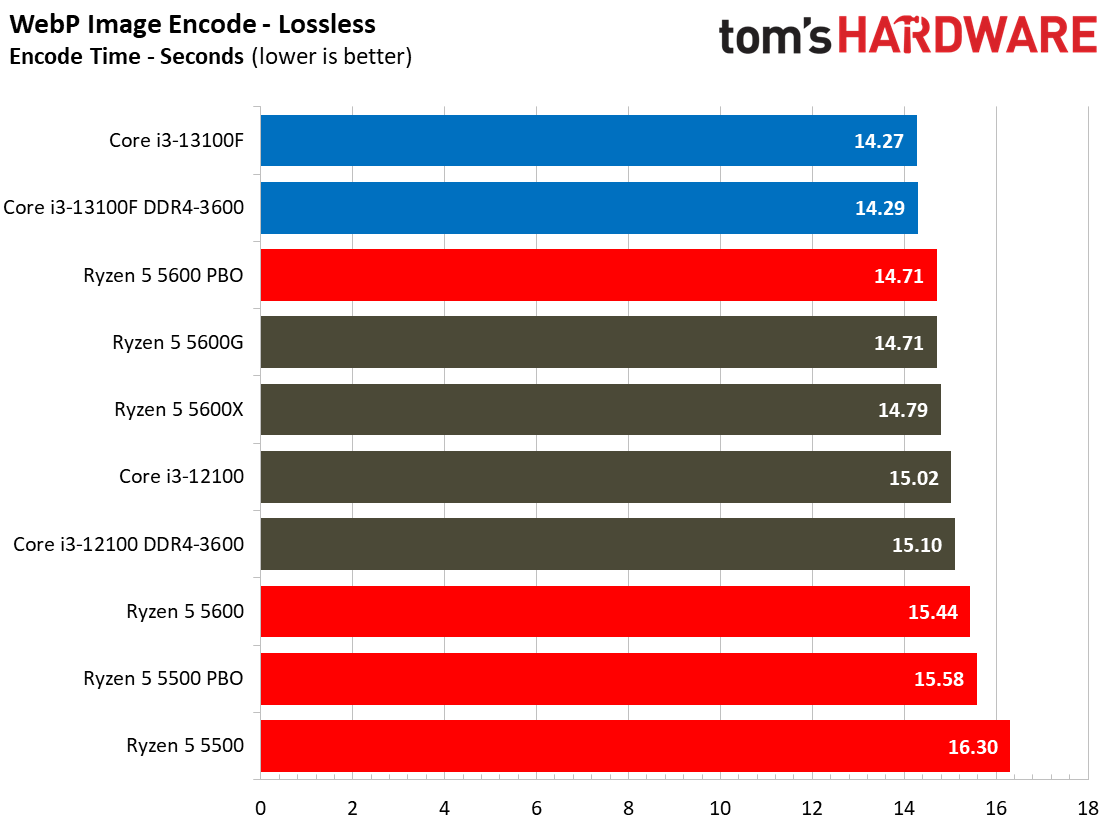
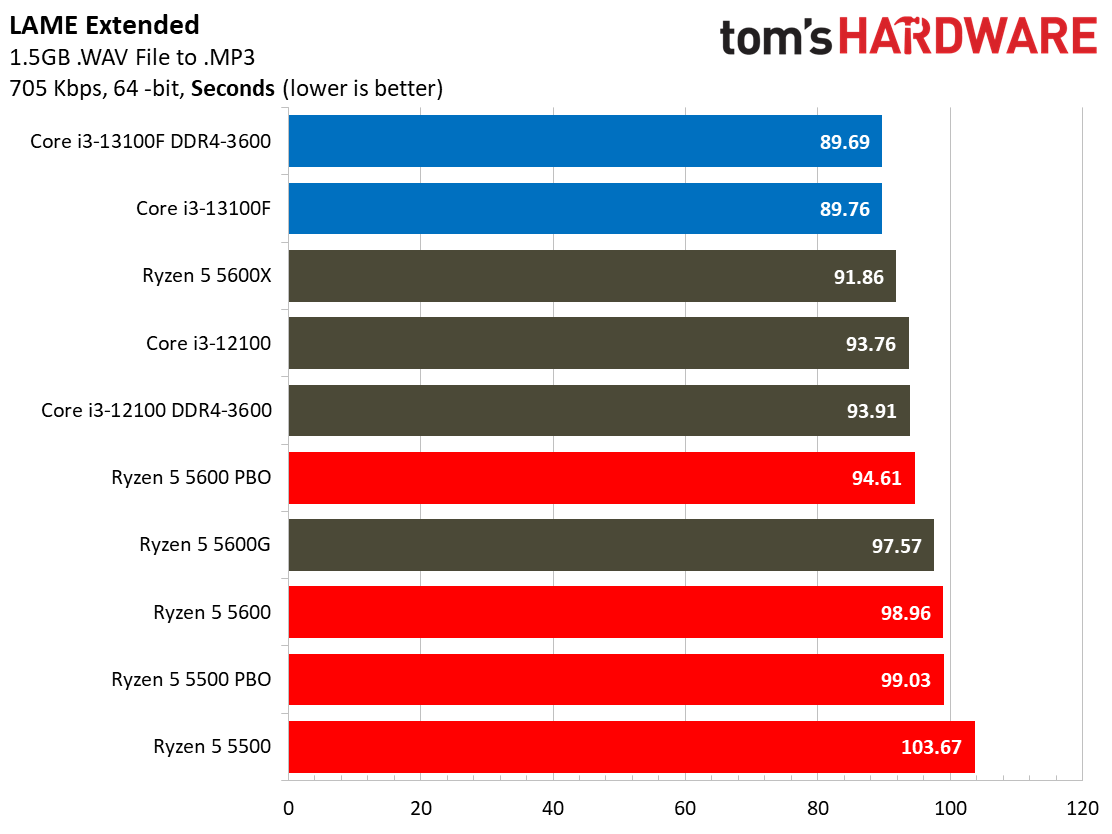
Most encoders tend to be either heavily threaded or almost exclusively single-threaded — it takes an agile chip to master both disciplines. Handbrake, SVT-HEVC, and SVT-AV1 serve as our threaded encoders, while LAME, FLAC, and WebP are indicative of how the chips handle lightly-threaded engines.
Adobe, Web Browsing, Office, and Productivity on Intel Core i3-13100F
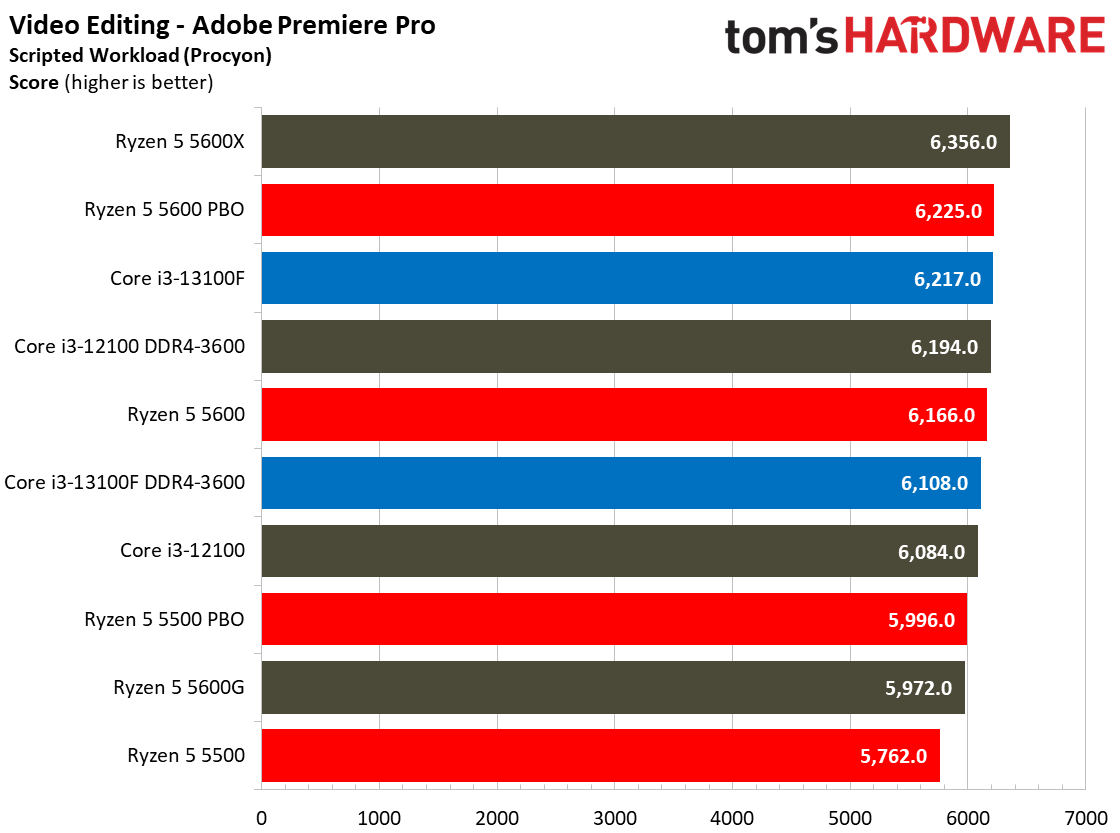
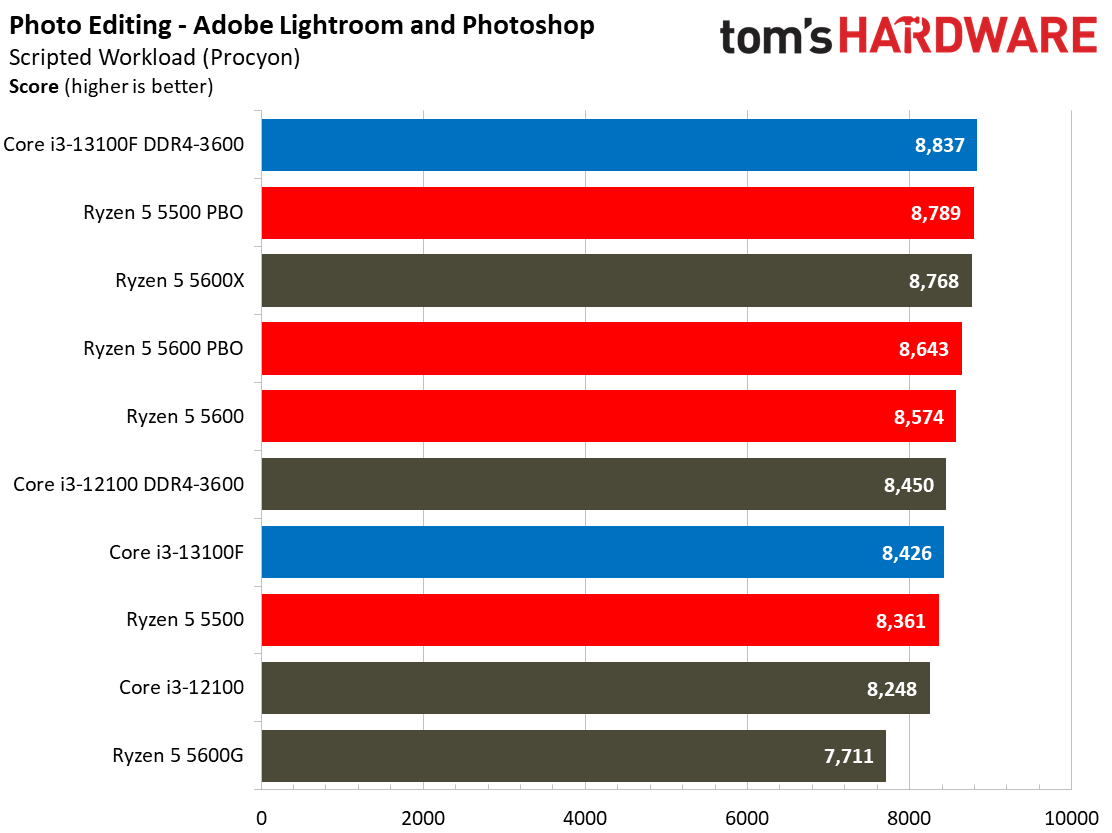
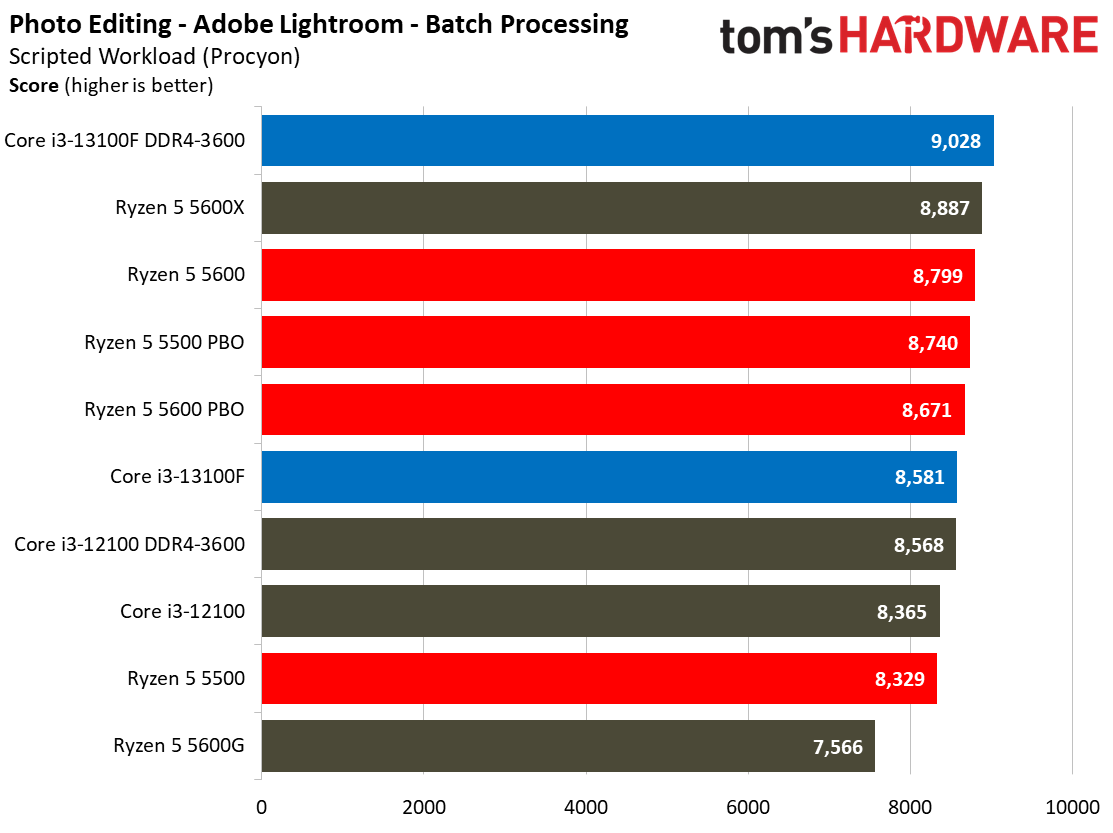
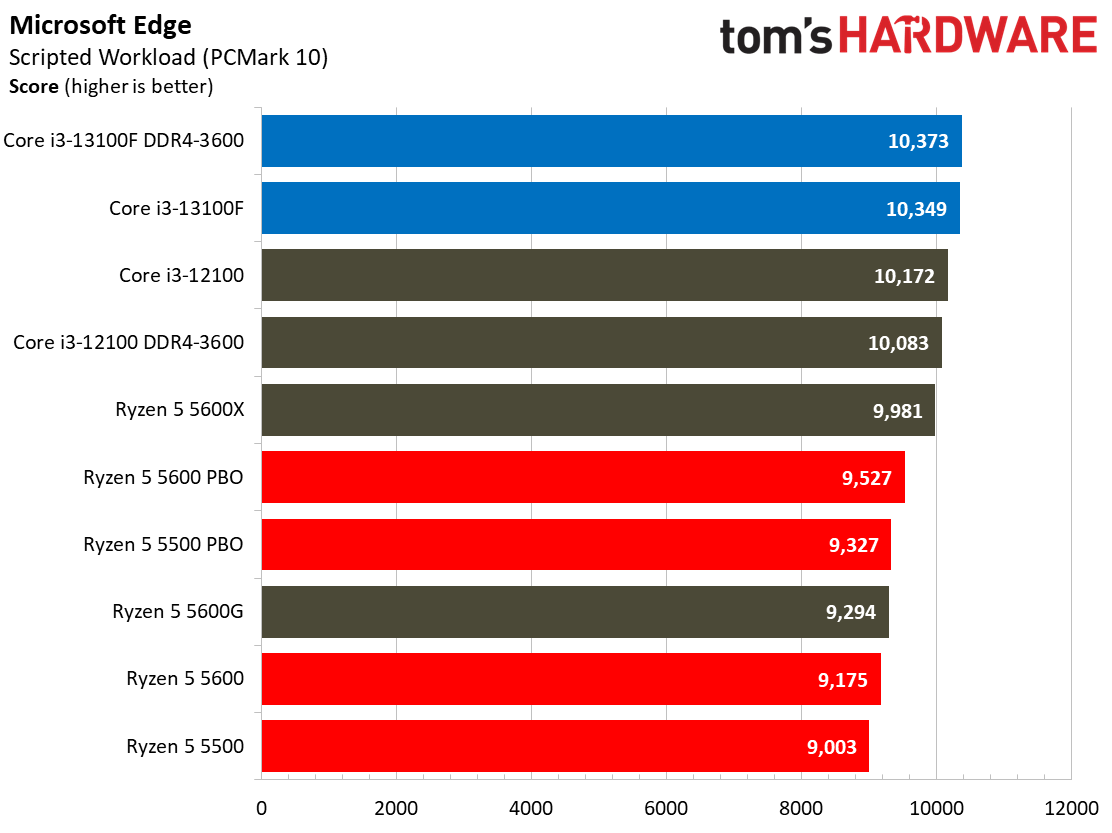
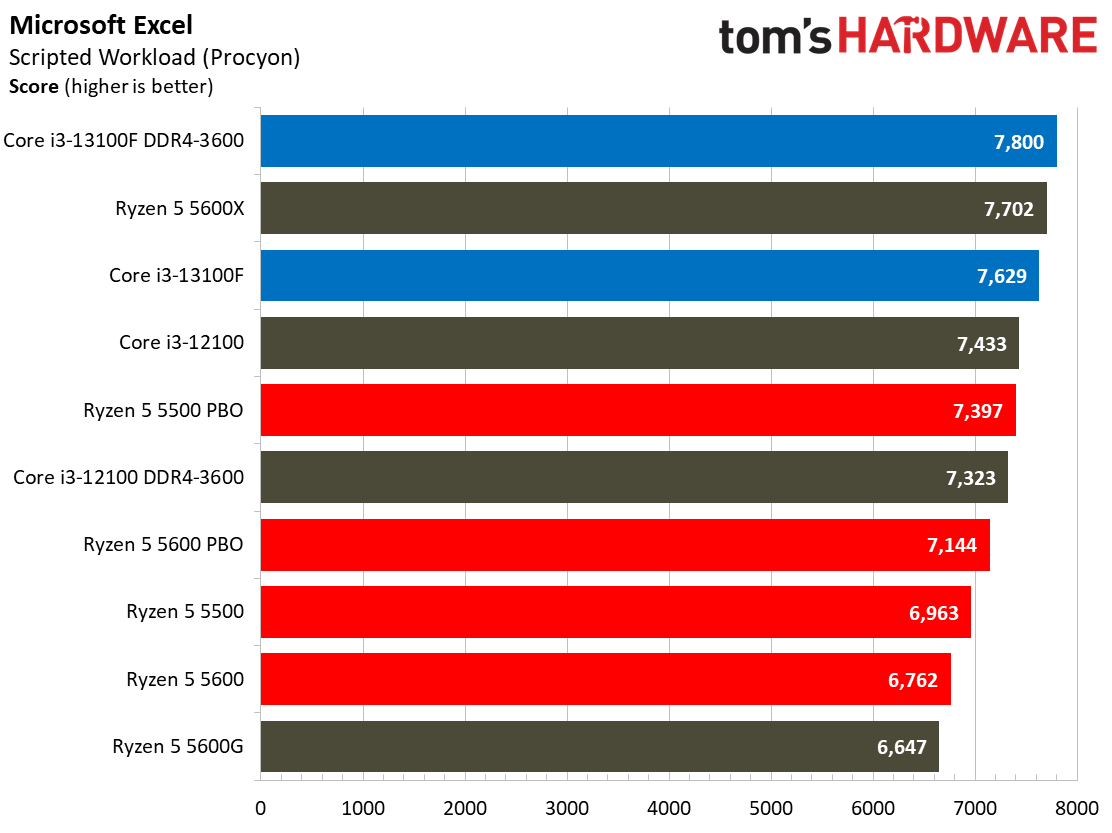
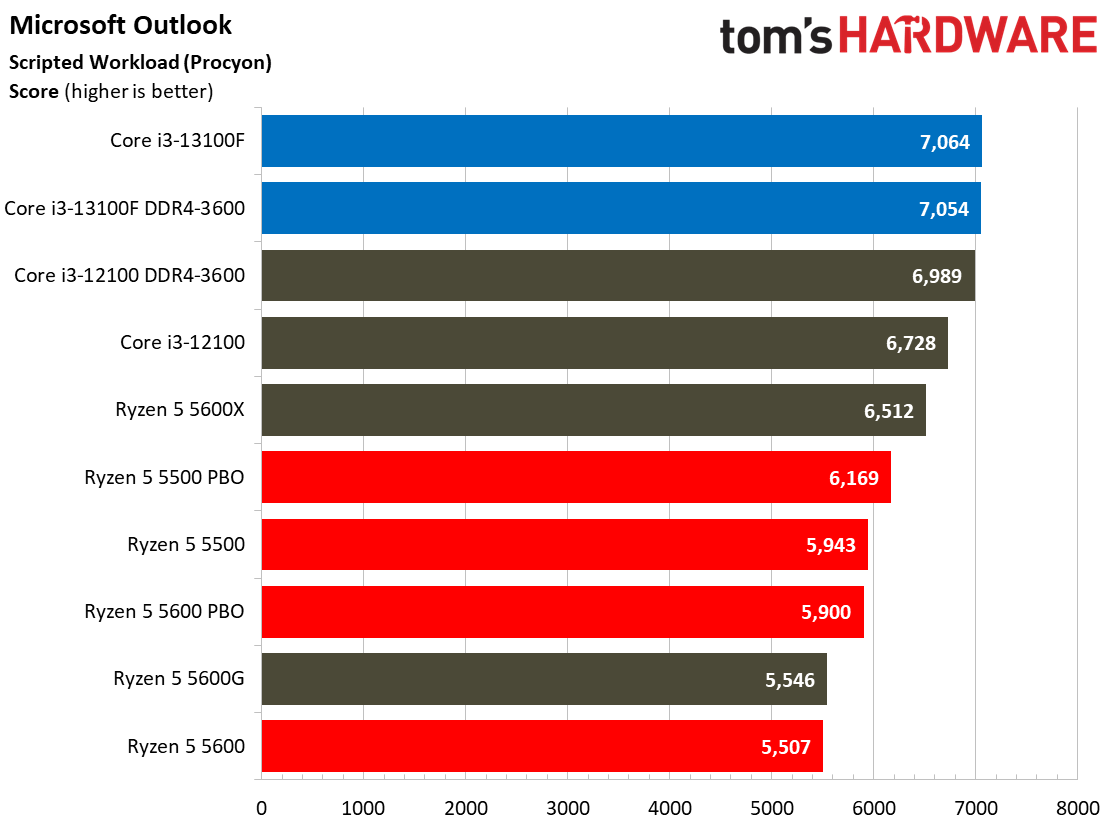
Compilation, Compression, AI Chess Engines, AVX-512 Performance on Intel Core i3-13100F
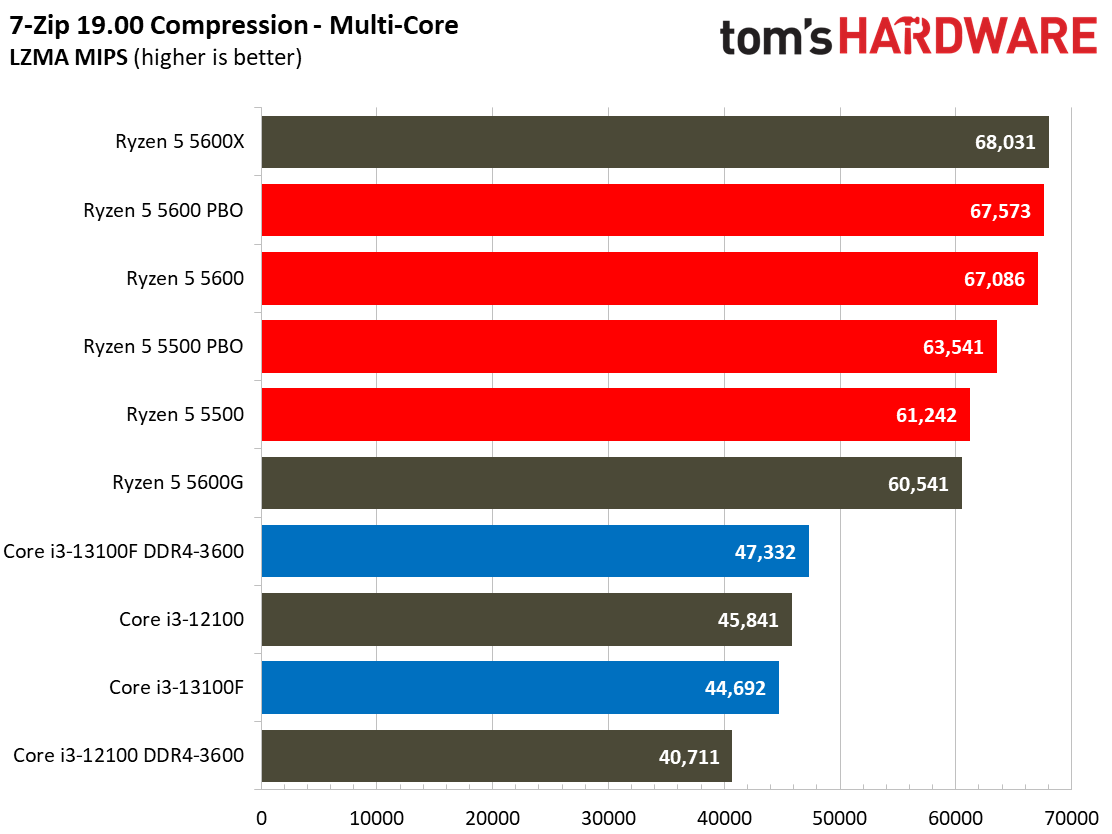
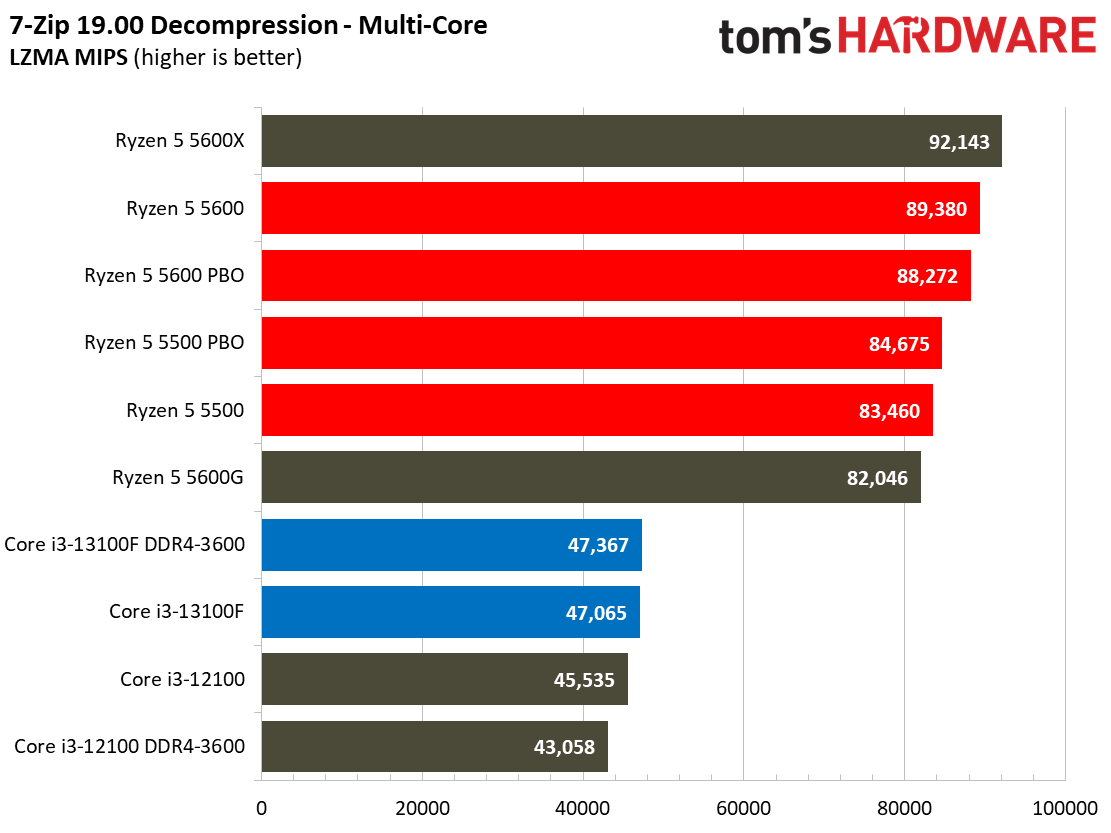
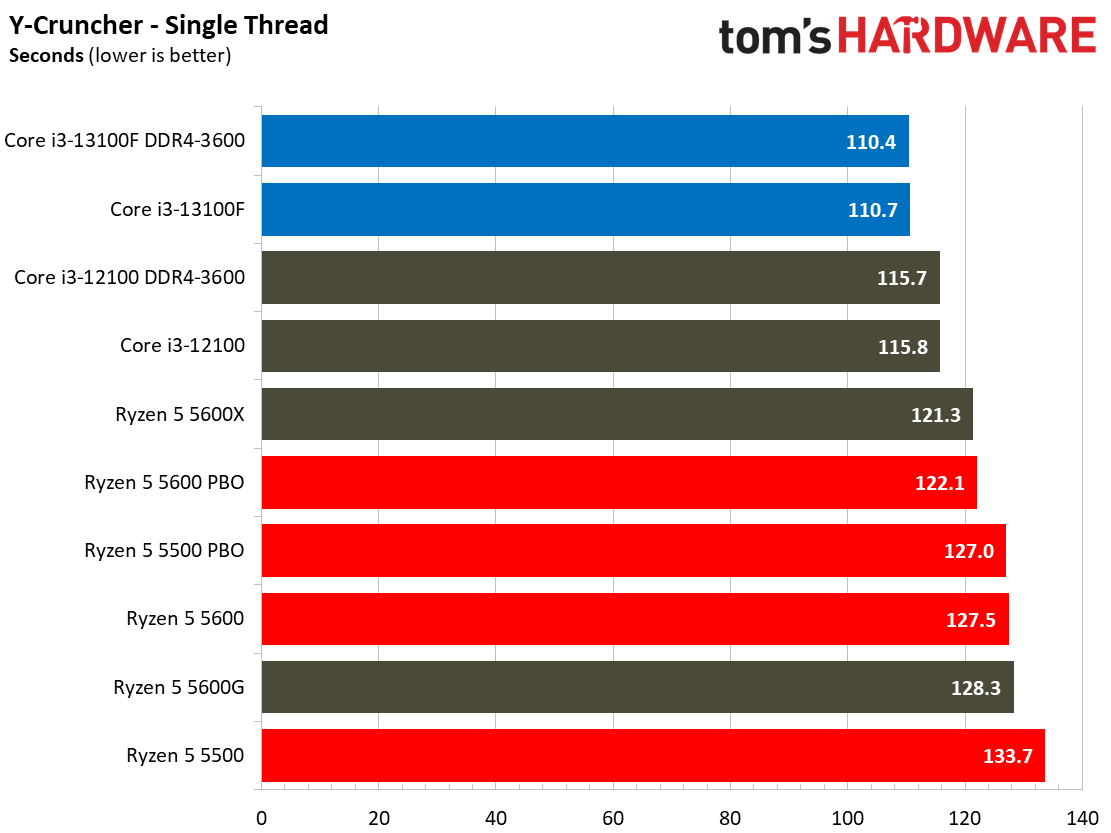
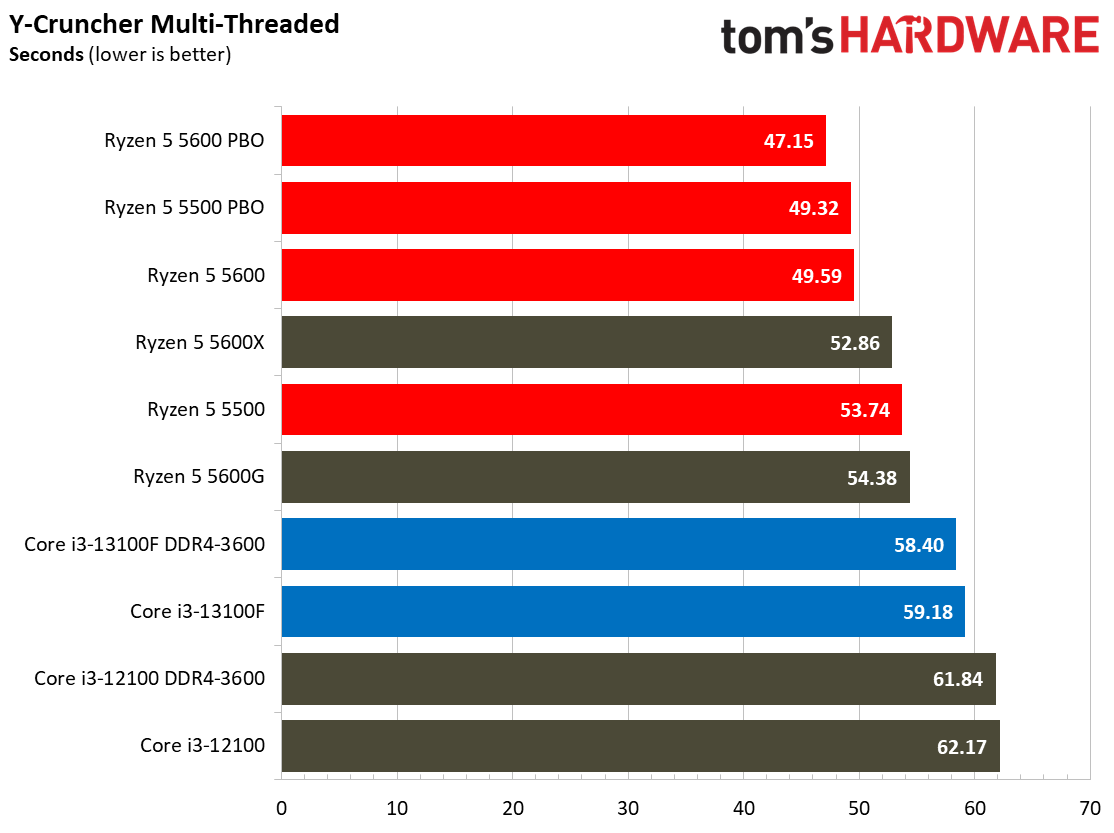
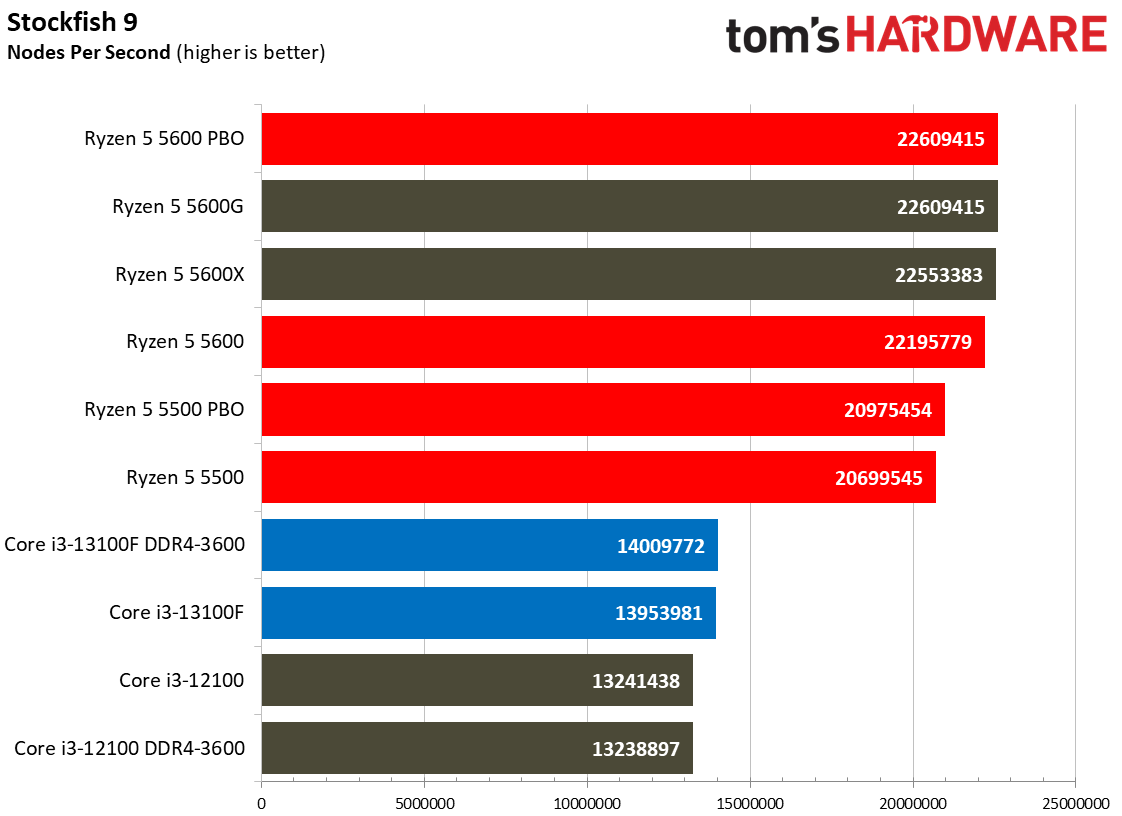
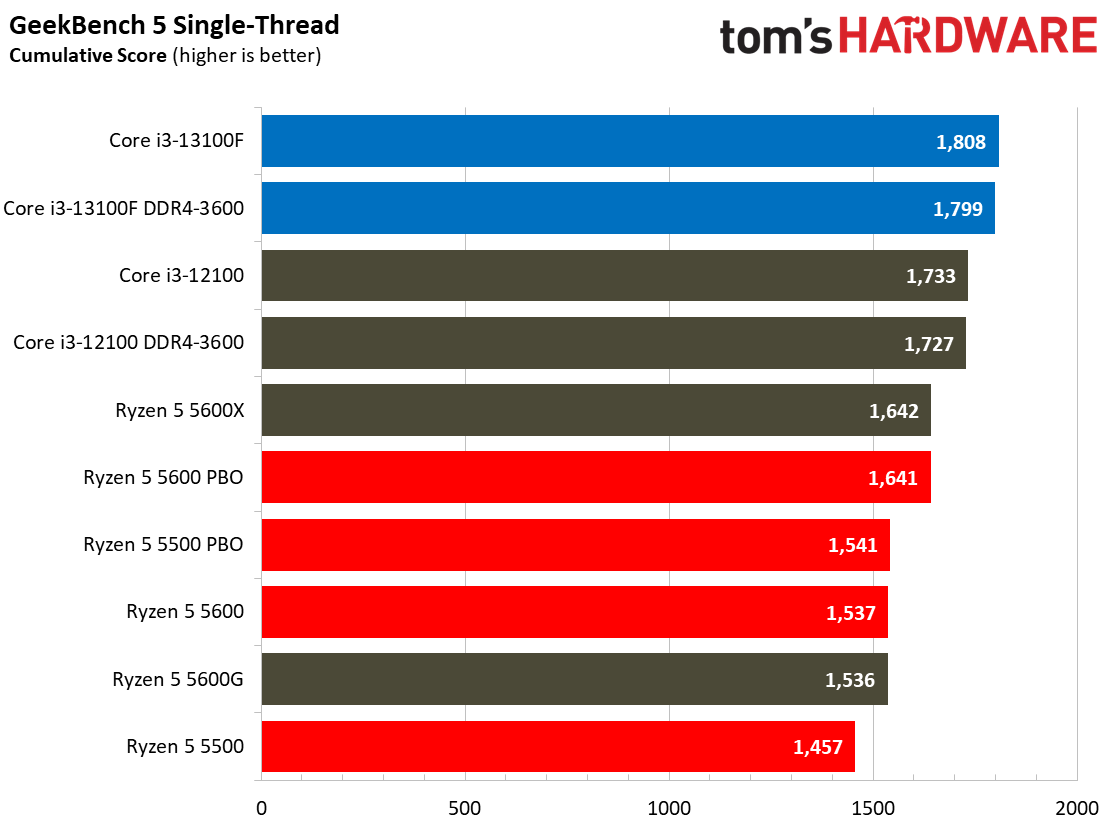
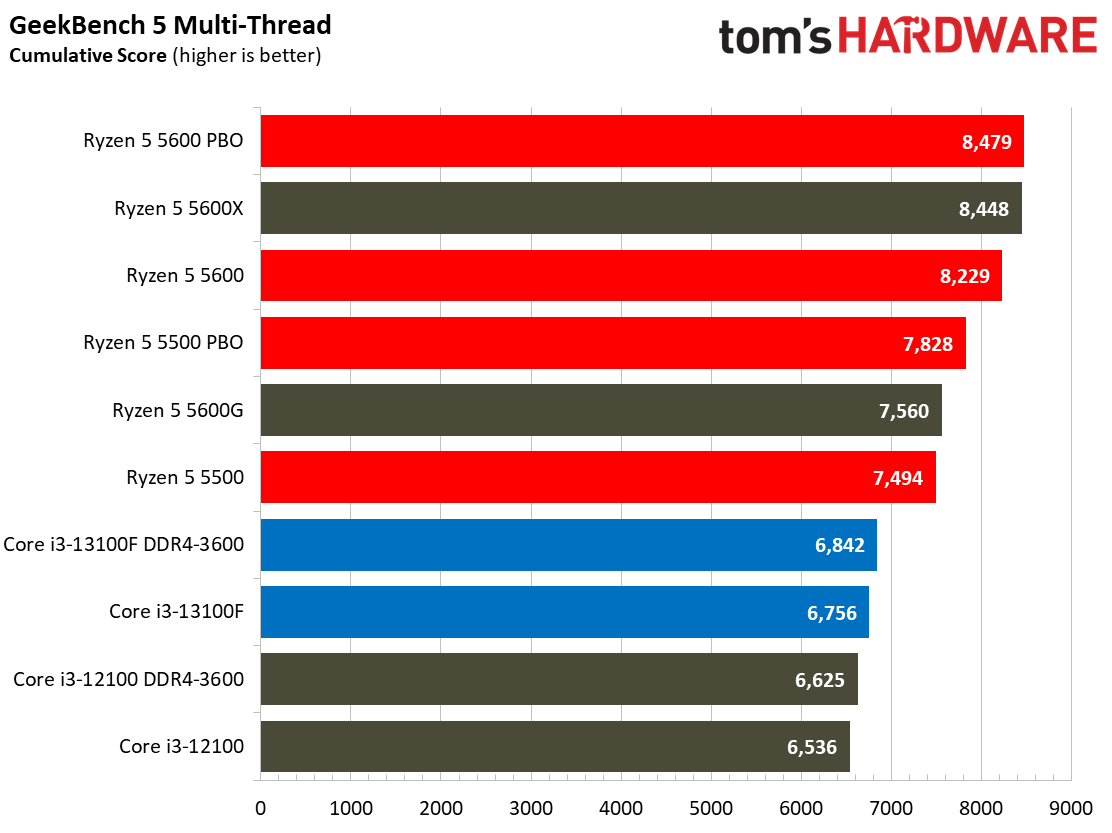
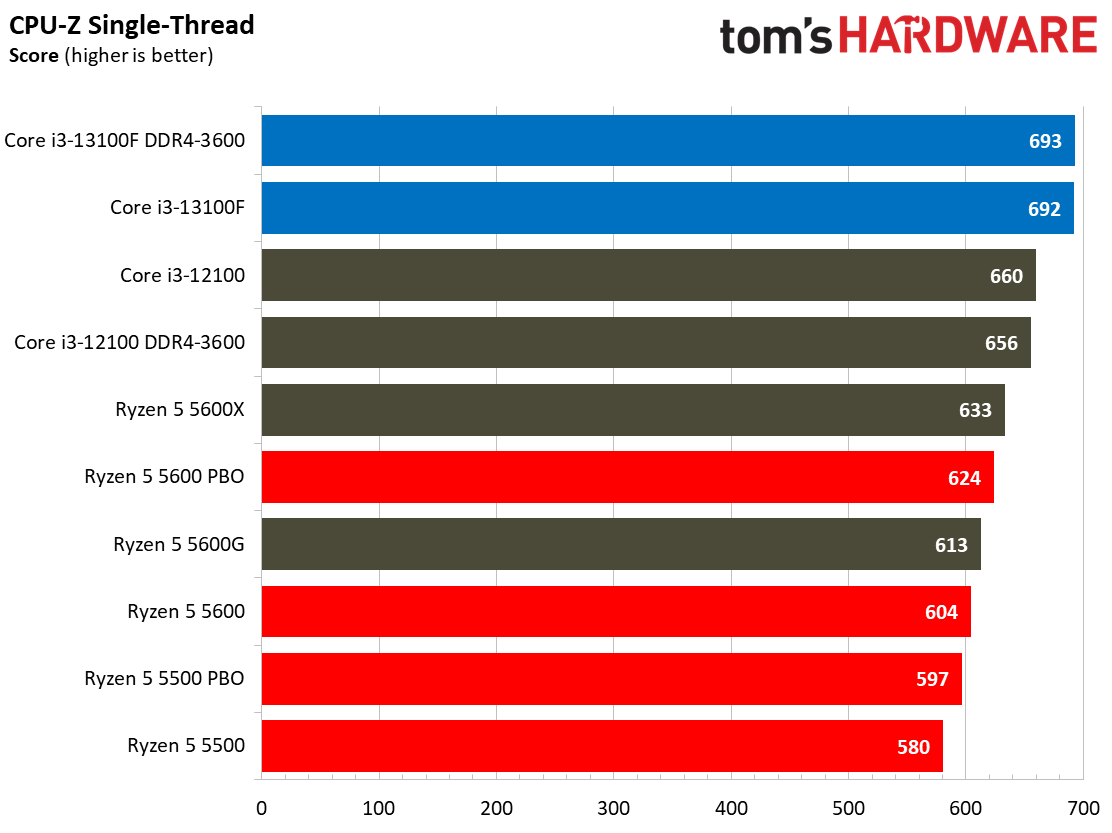
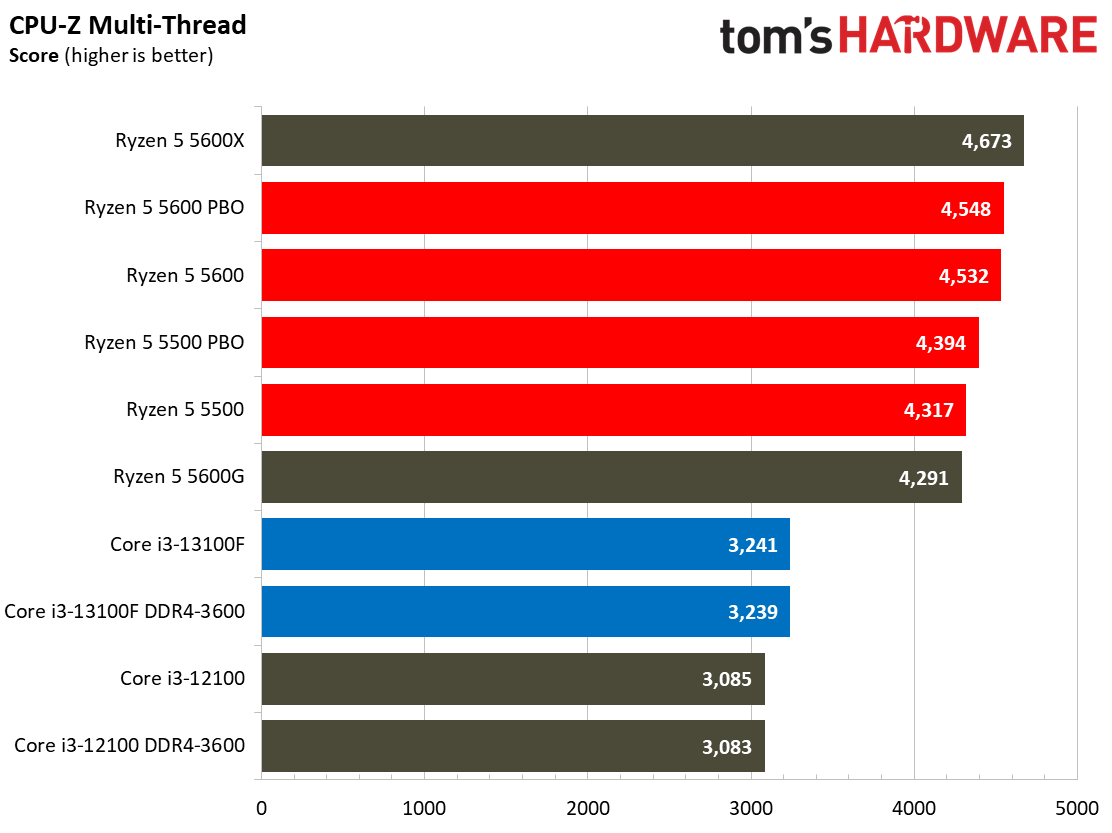
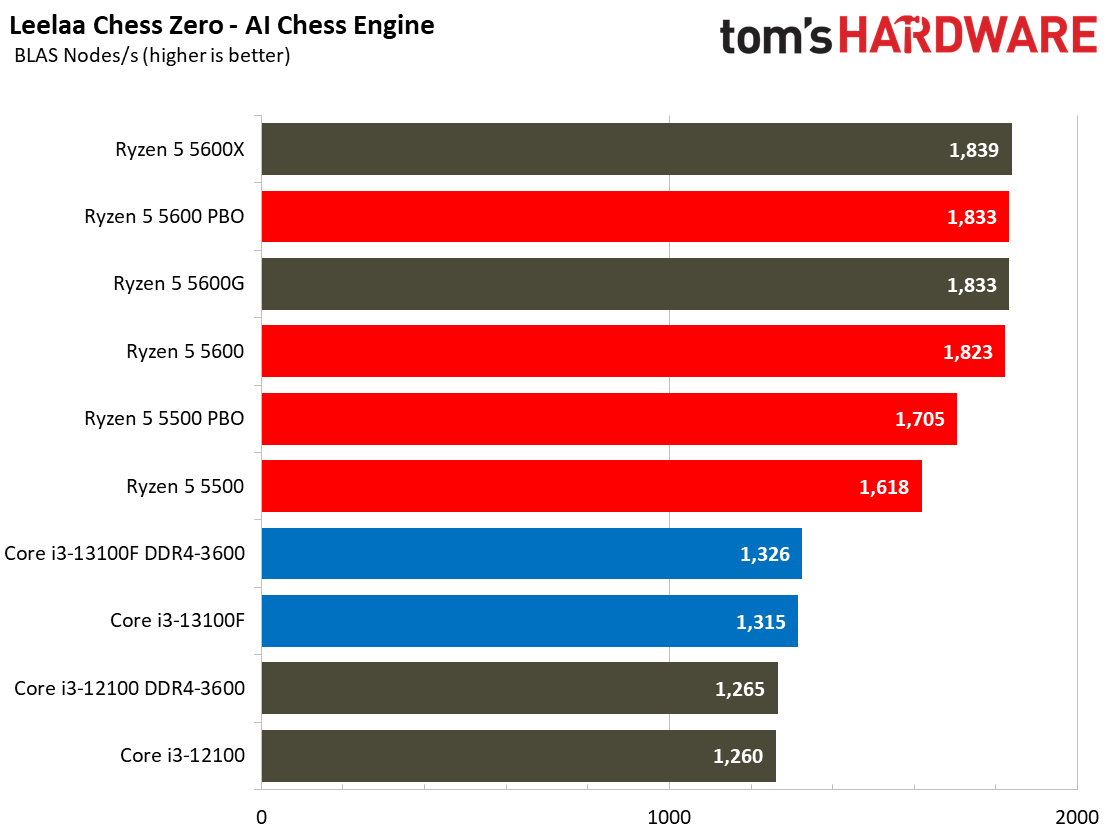
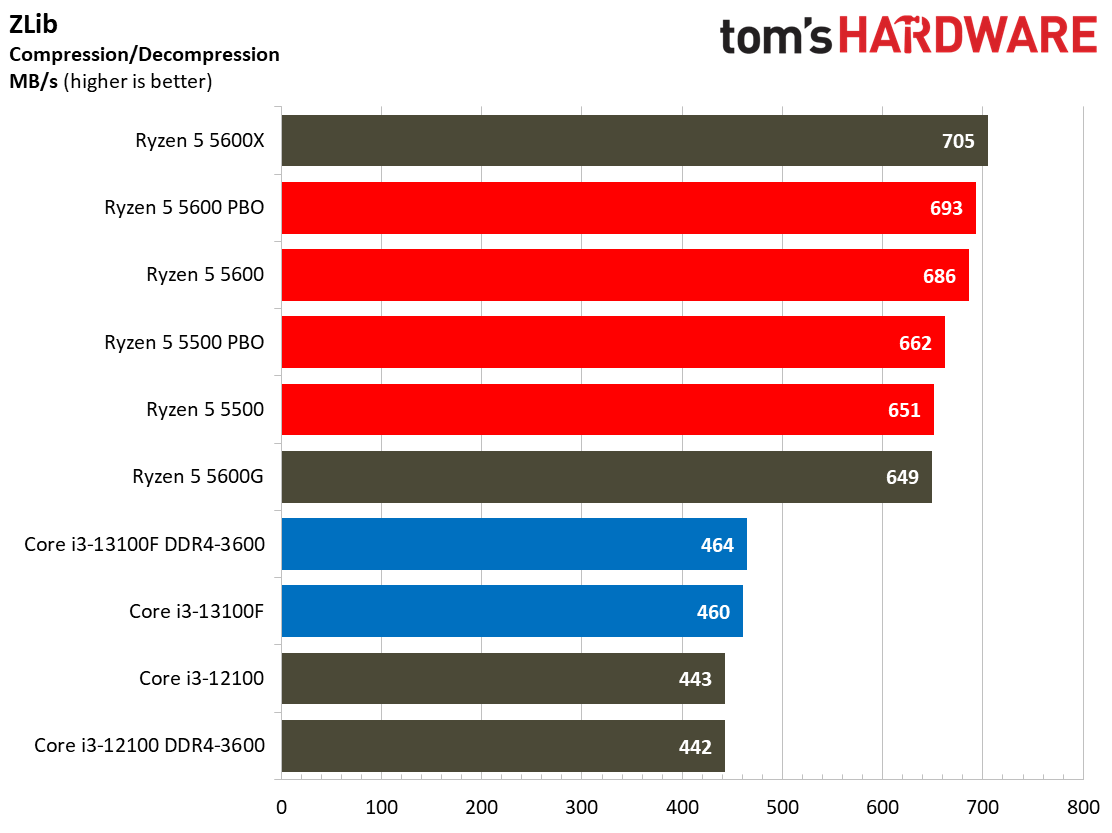
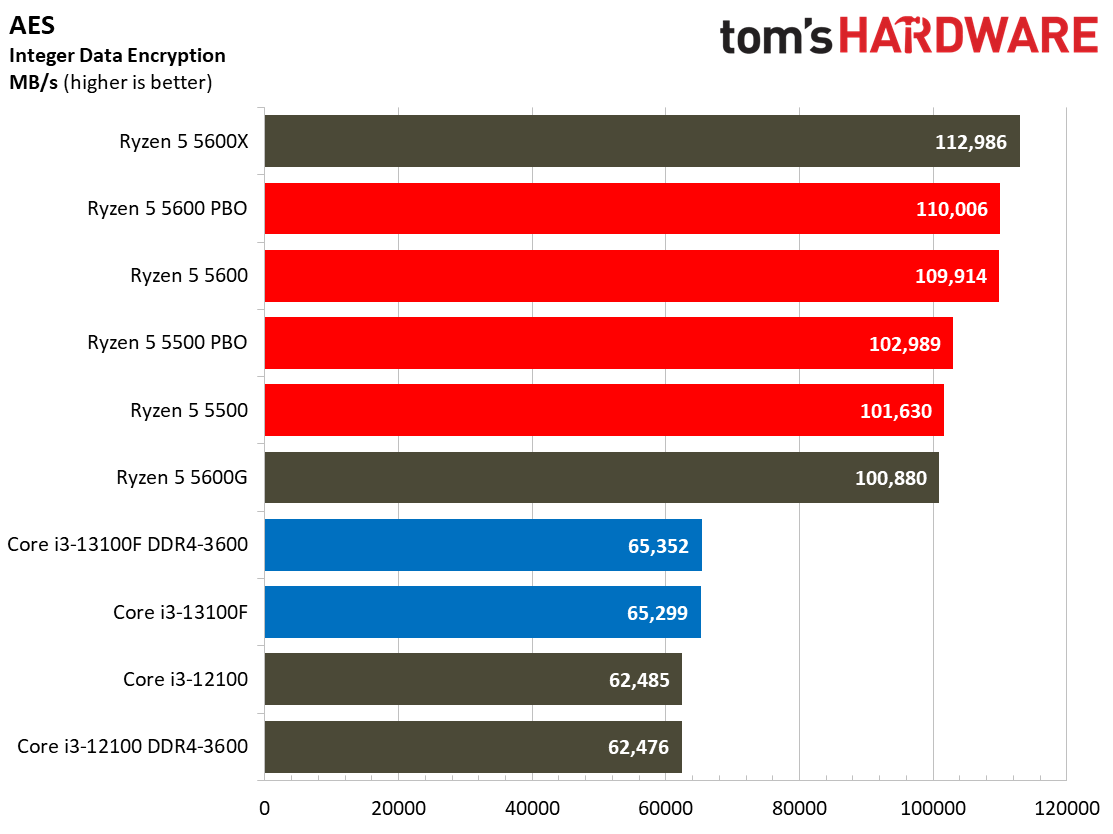
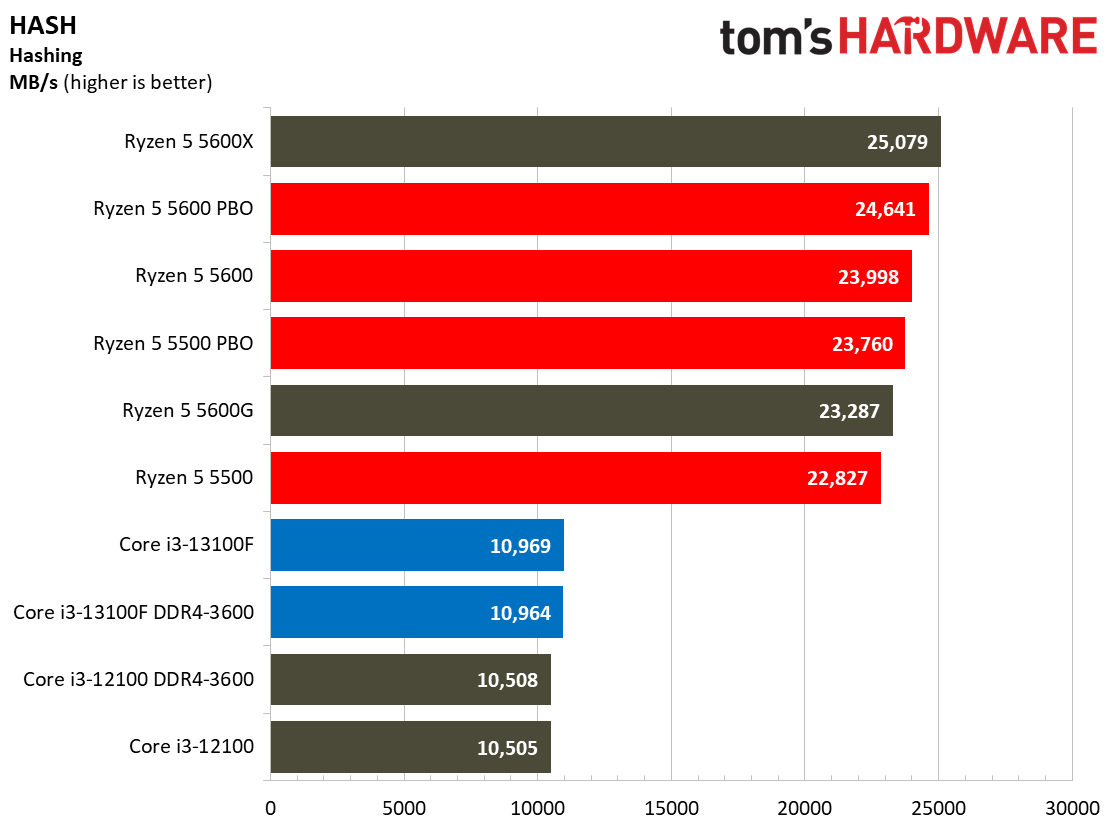
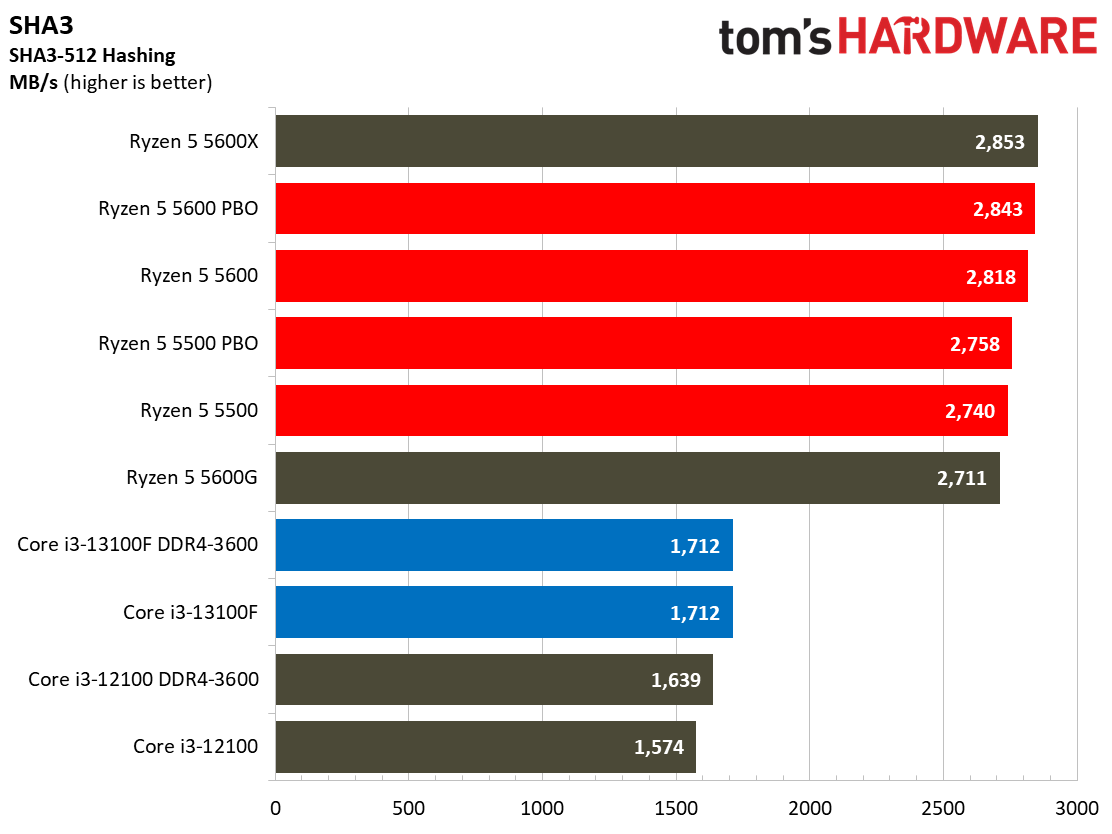
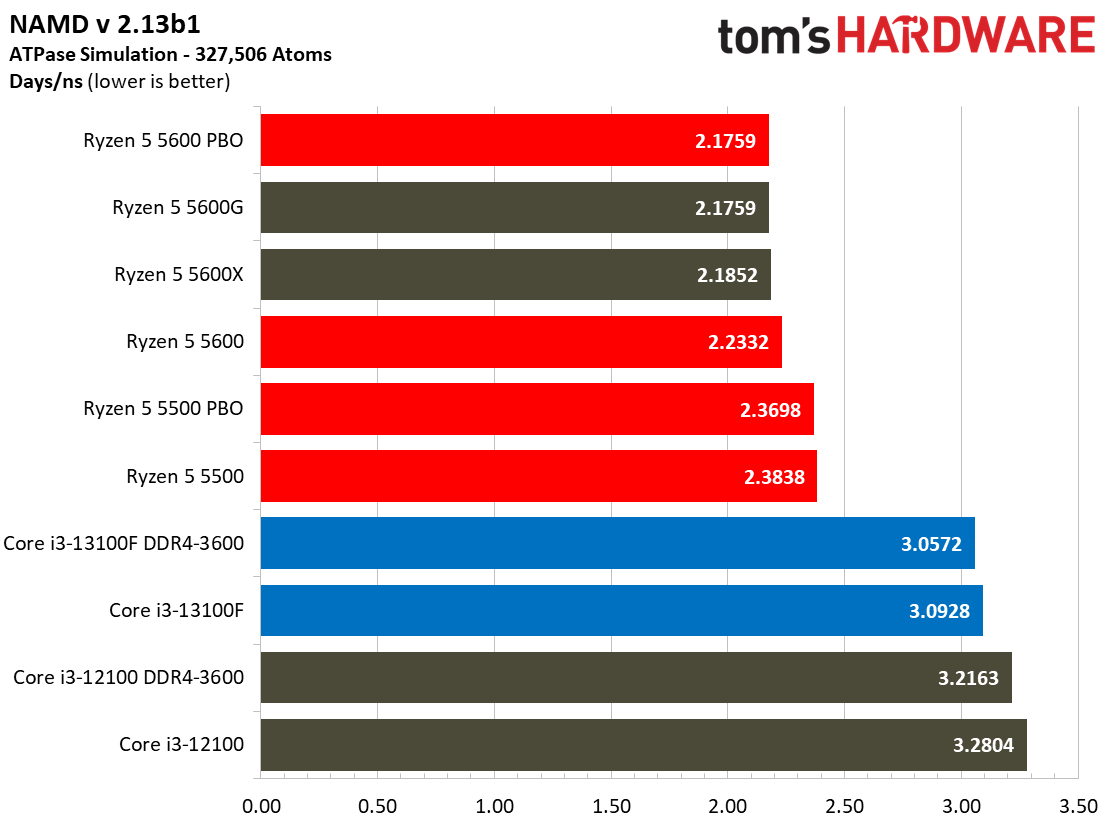
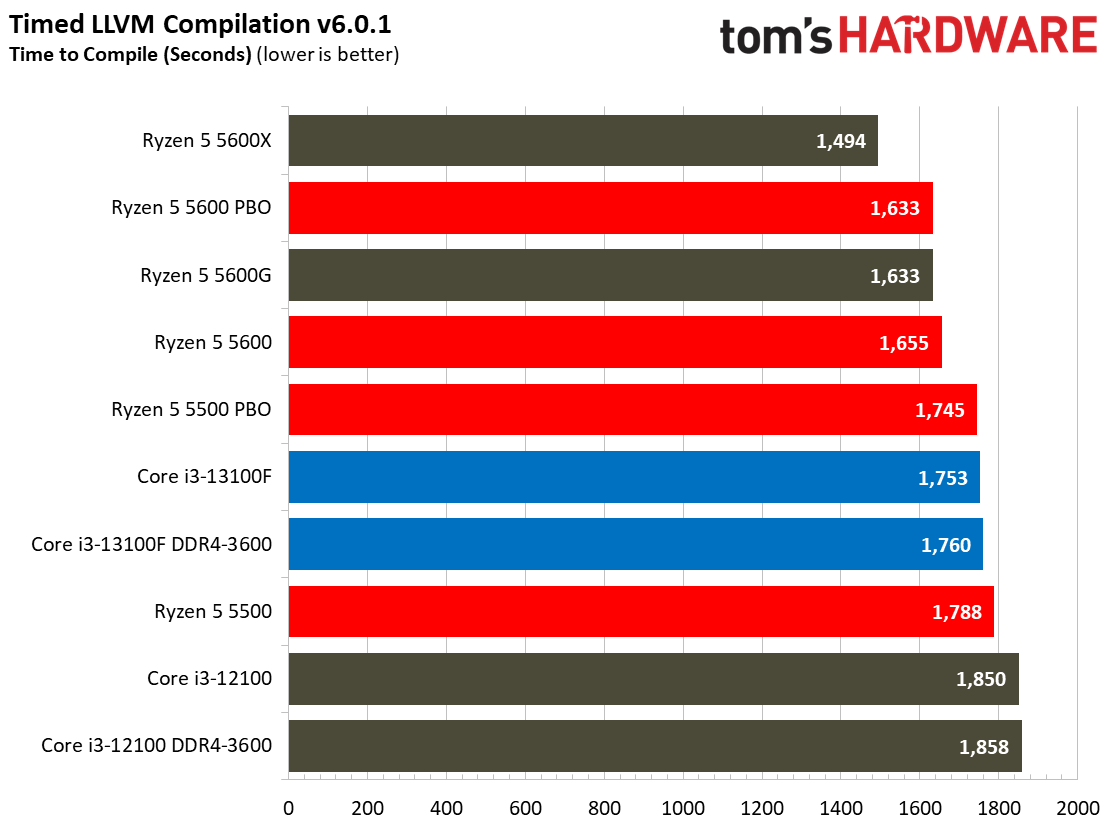
Aside from the compression/decompression tests, most of these benchmarks aren't as important for this class of processors, but we include them for the sake of completeness. As you can see, AMD easily wins the compression and decompression benchmarks due to both the advantage of having more cores and specific architectural optimizations that benefit this type of work.
Get Tom's Hardware's best news and in-depth reviews, straight to your inbox.
The remainder of the benchmarks run the gamut from the exceedingly branchy code in the LLVM compilation workload to the massively parallel molecular dynamics simulation code in NAMD to encryption and compression/decompression performance. The demanding Y-cruncher benchmark computes Pi with the AVX instruction set and has optimizations for both Intel and AMD’s architectures.
The Core i3-13100/F pulls off a few wins in single-threaded tests, but the rest of the benchmarks are nearly entirely in AMD's favor.
- MORE: AMD Ryzen 7 7800X3D vs Intel Core i9-13900K vs Core i7-13700K
- MORE: Best CPU for gaming
- MORE: CPU Benchmark Hierarchy
- MORE: Intel vs AMD
- MORE: How to Overclock a CPU
Current page: Intel Core i3-13100F Productivity Benchmarks
Prev Page Intel Core i3-13100F Gaming Benchmarks Next Page Zen 3 Comes Roaring Back
Paul Alcorn is the Editor-in-Chief for Tom's Hardware US. He also writes news and reviews on CPUs, storage, and enterprise hardware.
-
InvalidError Sweet! More price-performance stagnation!Reply
Making the new stuff only marginally more desirable than previous-gen stuff so more people and companies decide to hang on to whatever they already have for a while longer is a great way to reduce e-waste production. -
TerryLaze Mmmm, ahhh, yes! Very interesting numbers...Reply
Also replacement low/mid end CPUs are supposed to be released this year so if you are on a tight budget then might as well wait a bit and see if those are more worth it.
https://www.tomshardware.com/news/intel-meteor-lake-cpus-for-desktops-incoming -
Eximo As near as I can tell another big win for Intel is the idle power consumption. Which is useful for me as an HTPC CPU.Reply
Some people have pointed out the cause may be that the I/O die being on a larger node and having to power the communication between dies is more costly for Ryzen, but it is hard to tell when looking in from the outside. -
shady28 Eh, these aren't really price comparable chips. The 13100F is $99 on Amazon right now, while the 5600X is $152 and the 5600 is $140.Reply
The 13400F is $185.
Before someone tells me about Newegg prices on Intel (higher than Amazon)- the 5600X is $189 there, which makes it uncompetitive vs 13400F at Newegg. Amazon though, it's decently priced at $152.
So basically the 5600X fits in an in-between slot in pricing. On either side of the 5600X/5600 +/- $40 sits a chip which is either notably slower (13100F), or notably faster (13400F).
I think this all comes down to budget questions. -
bolweval Reply
Glass half full!InvalidError said:Sweet! More price-performance stagnation!
Making the new stuff only marginally more desirable than previous-gen stuff so more people and companies decide to hang on to whatever they already have for a while longer is a great way to reduce e-waste production. -
baboma >The $150 Core i3-13100 is simply overpriced for a quad-core in 2023.Reply
It's amazing how an article can be obsoleted in the space of two days. On 4/29, price on i3-13100 has dropped to $110 on Amazon,
https://camelcamelcamel.com/product/B0BQ6CTTMK
i5-13400 has dropped to $200,
https://camelcamelcamel.com/product/B0BQ68QB6R
i5-13500 has stayed roughly the same (since March) at $248,
https://camelcamelcamel.com/product/B0BQ6CFDCX
i5-13600K has also stuck with its initial launch price at $319 (probably because it's the most popular and thus in-demand),
https://camelcamelcamel.com/product/B0BCDR9M33
i7-13700 has also dropped in recent days (4/17) to $350
https://camelcamelcamel.com/product/B0BQ6BNY56
i7-13700K dropped (4/29) to $400,
https://camelcamelcamel.com/product/B0BCF57FL5
On the high end, i9-13900 has a small drop (4/27) from $$590 to $566,
https://camelcamelcamel.com/product/B0BQ69VJ1S
while i9-13900K has stabilized at $567 (from high of $740'ish), or same price as 13900,
https://camelcamelcamel.com/product/B0BCF54SR1
Checking in with Alder Lake pricing,
i3-12100 is $132, with low at $130, which means you can skip this in favor of 13100,
https://camelcamelcamel.com/product/B09NPHJLPT
i5-12400 is $180; again, not worth it when 13400 is only $20 more,
https://camelcamelcamel.com/product/B09NMPD8V2
i5-12600K is $234; worse bang/buck than i5-13500 at $14 more
https://camelcamelcamel.com/product/B09FX4D72T
